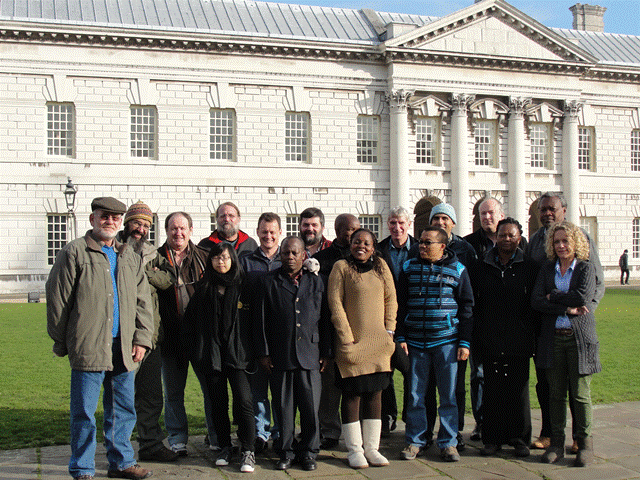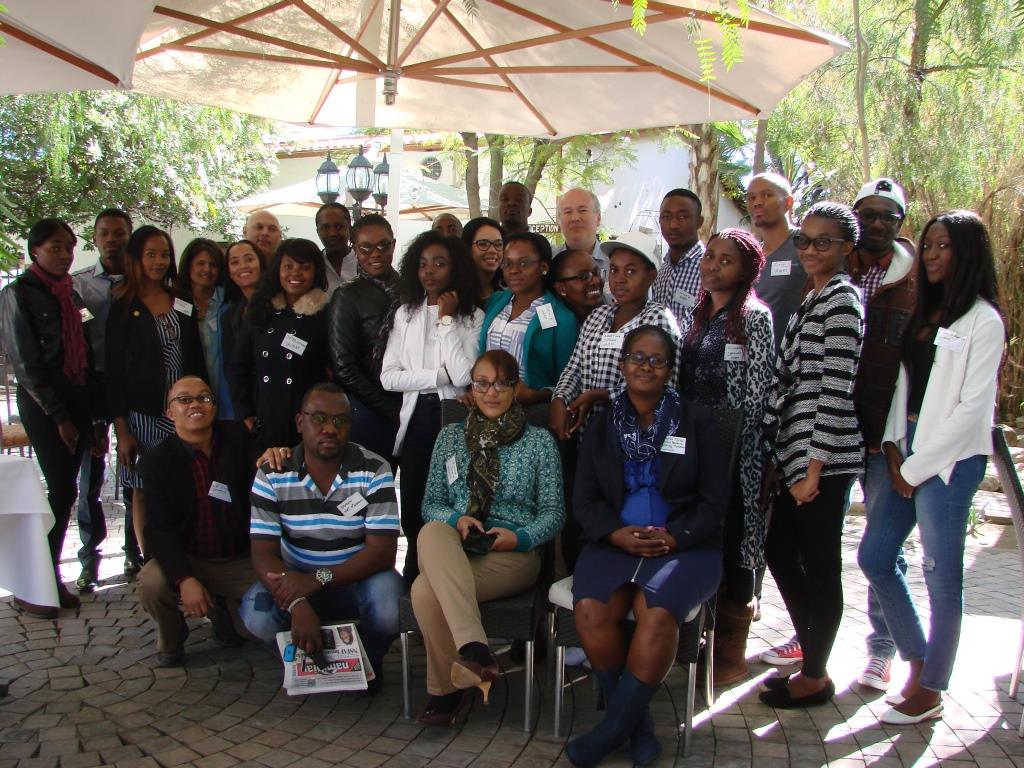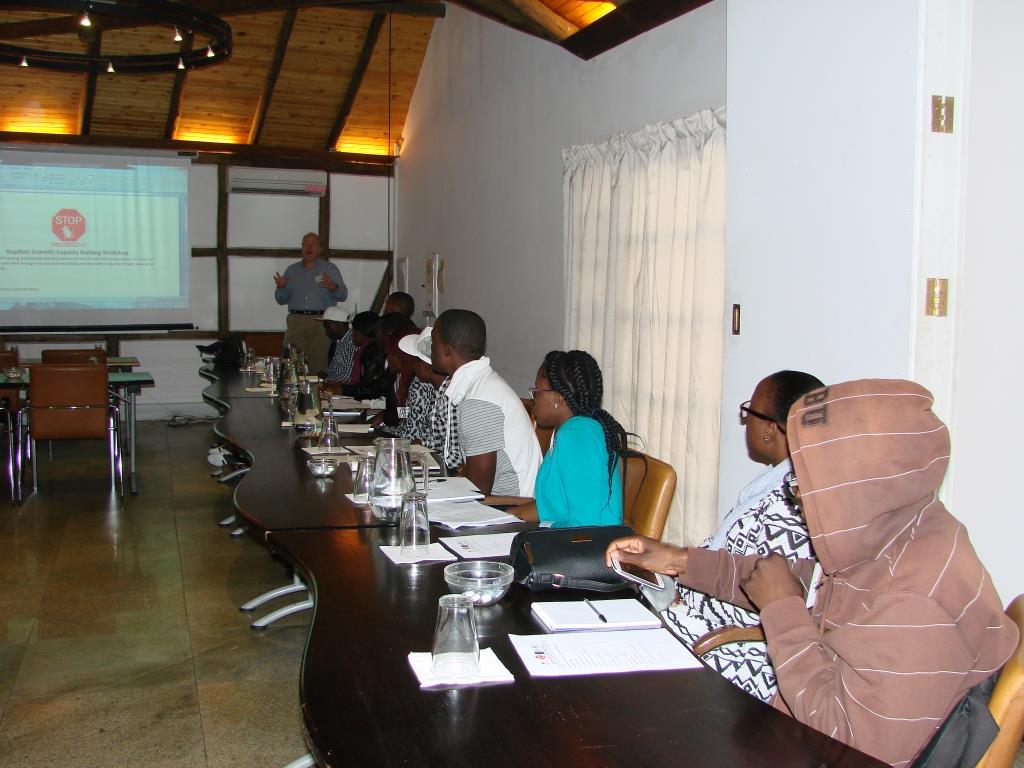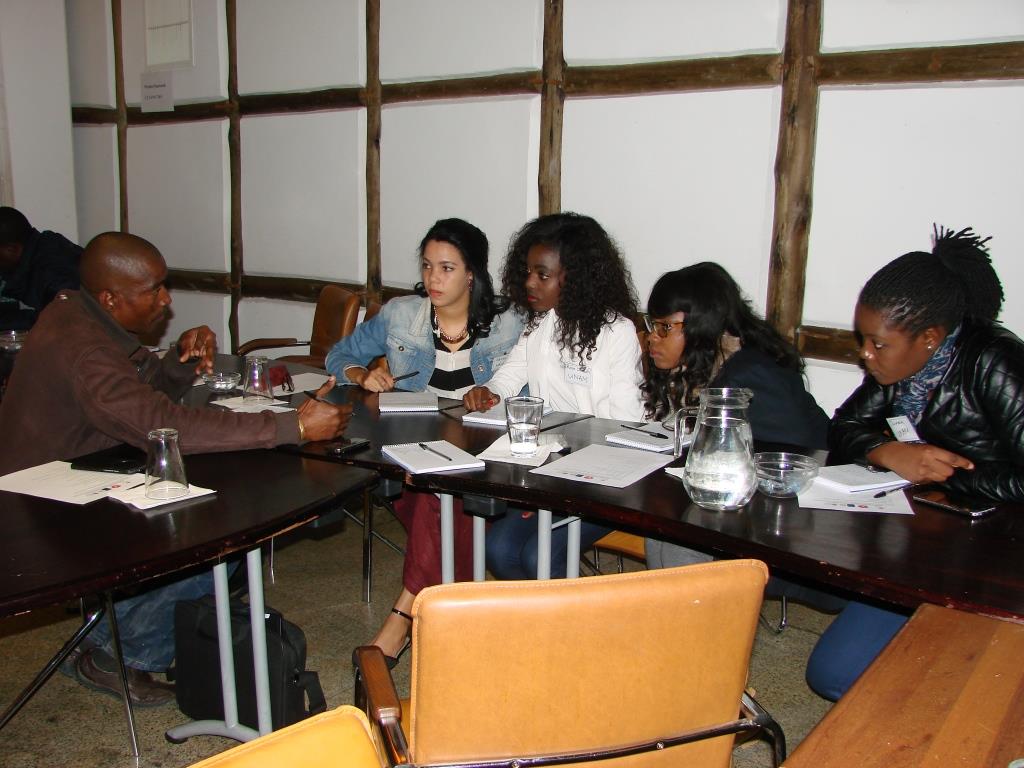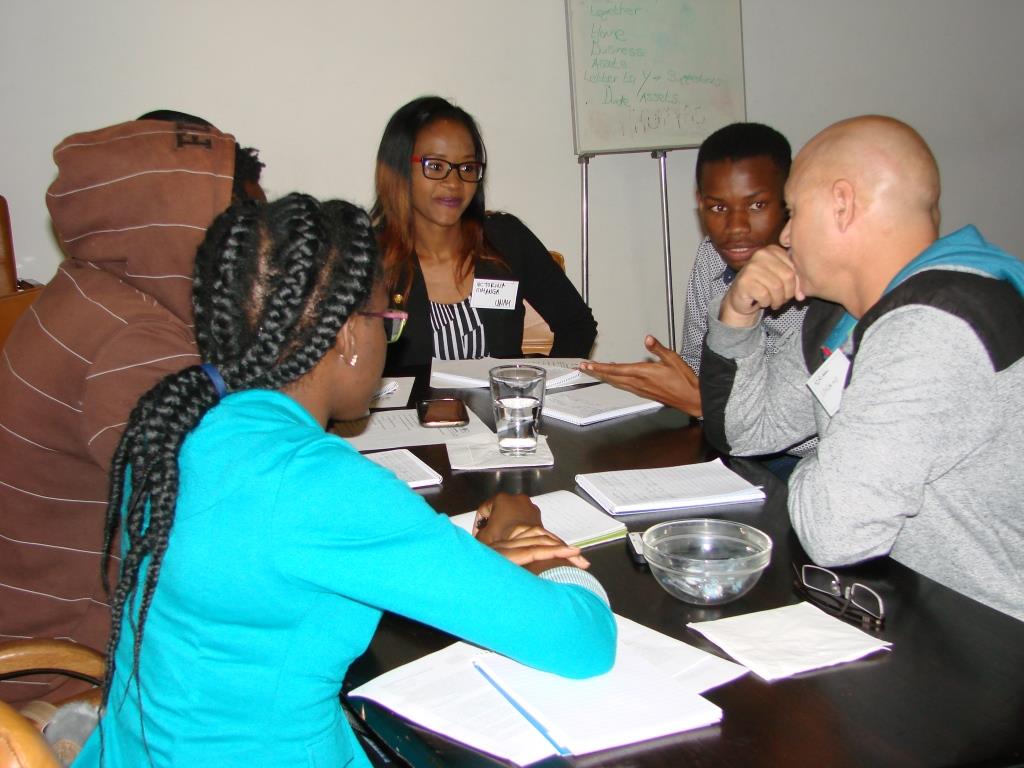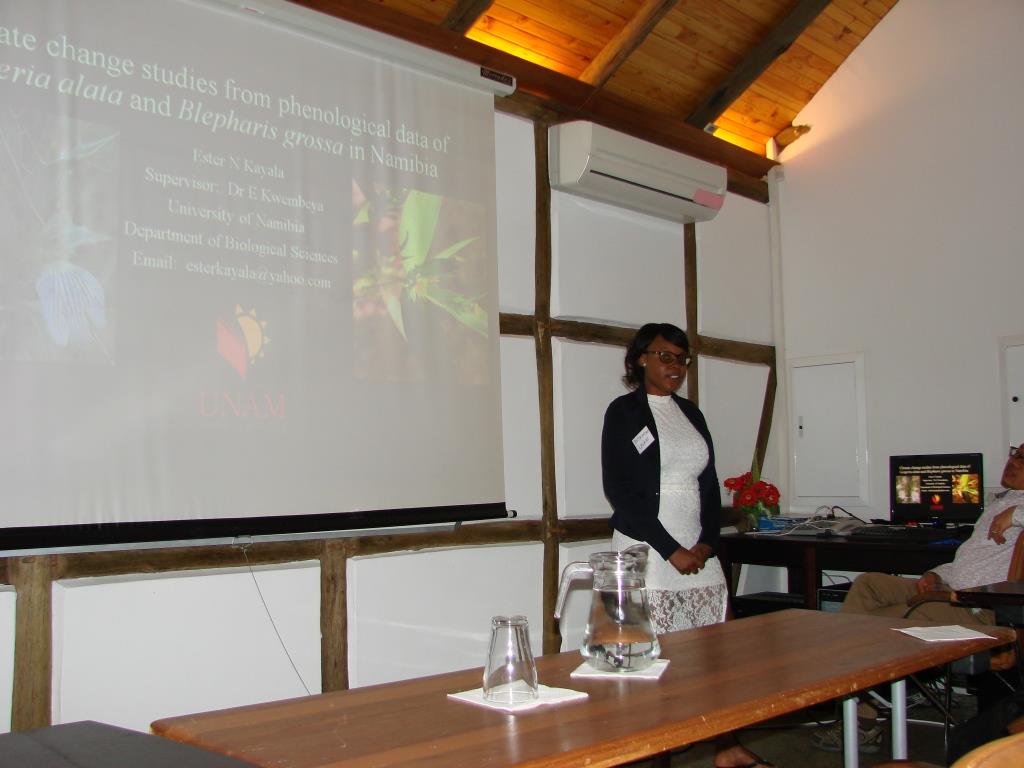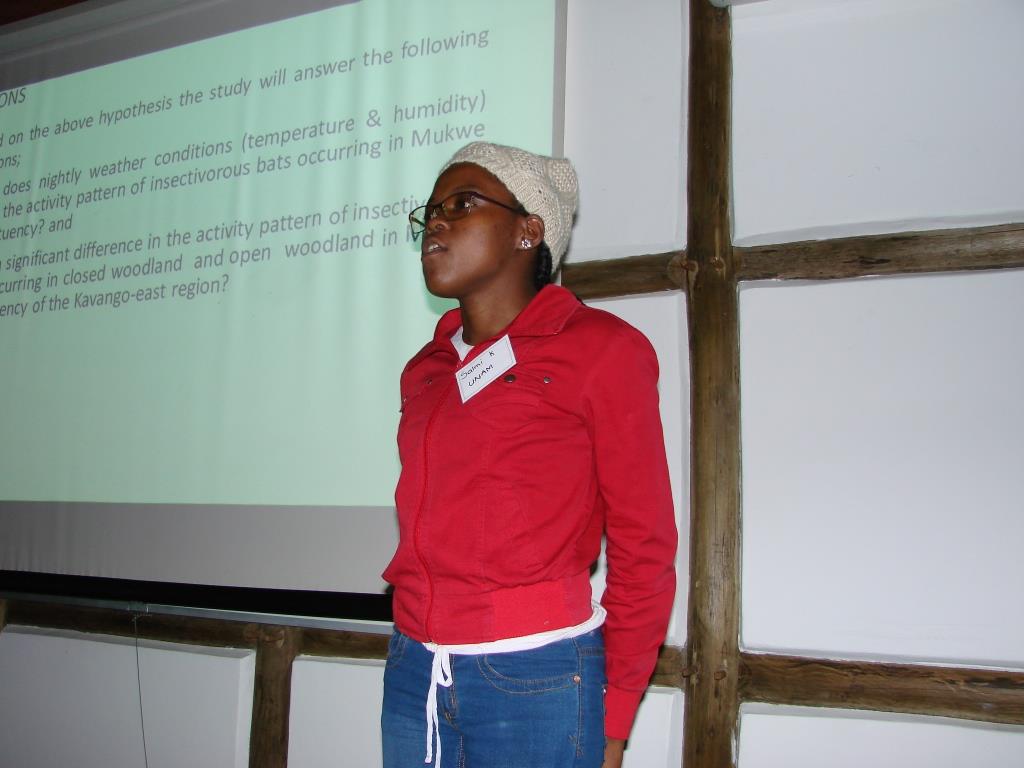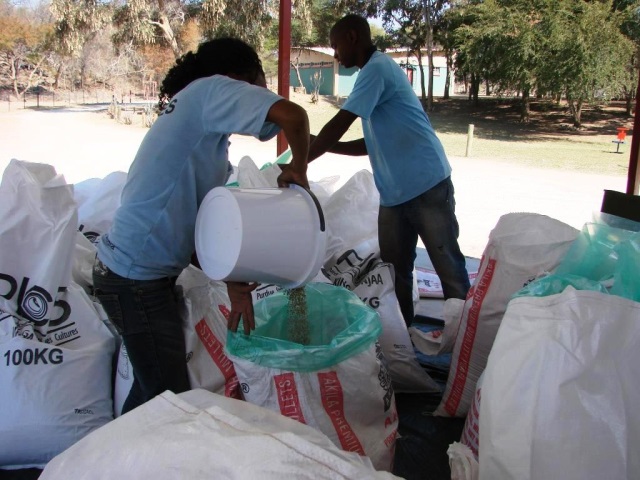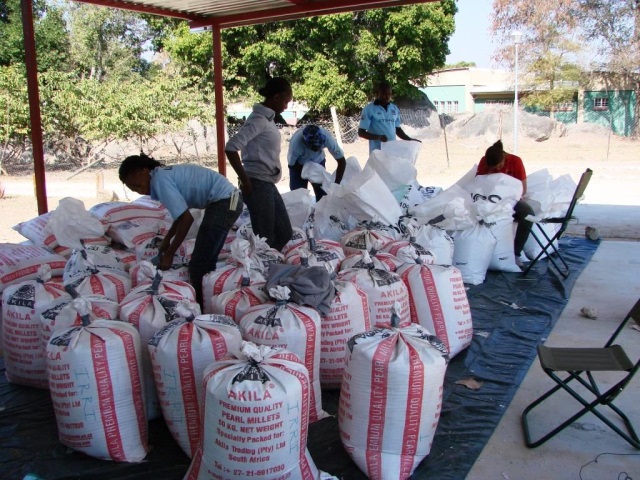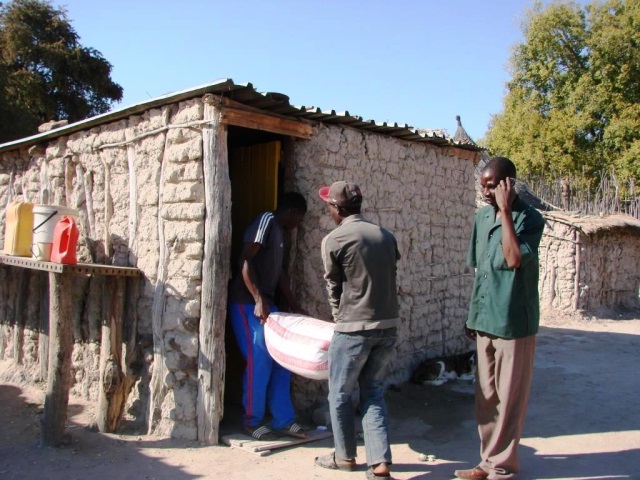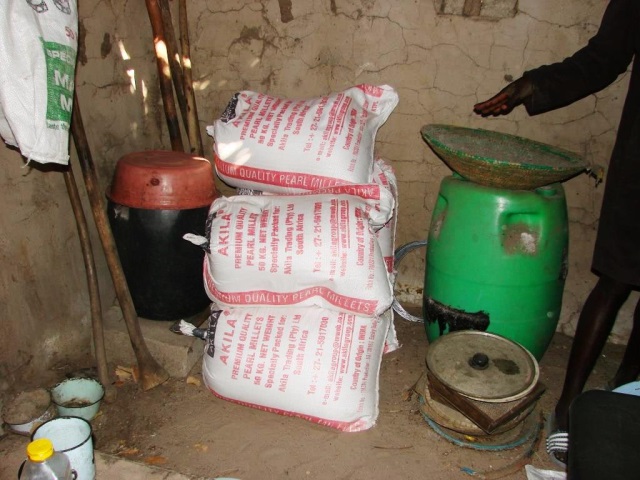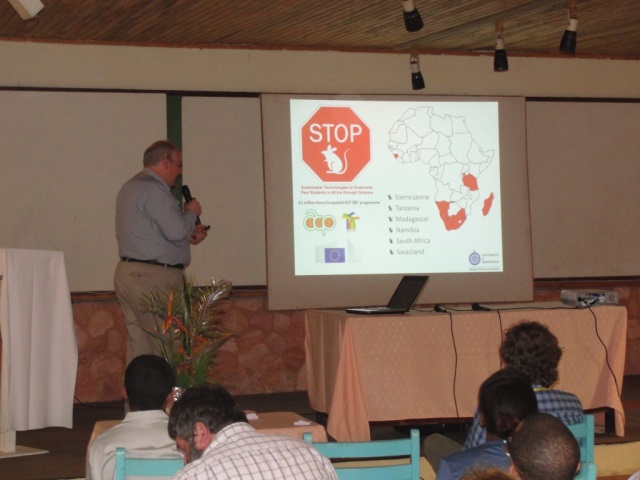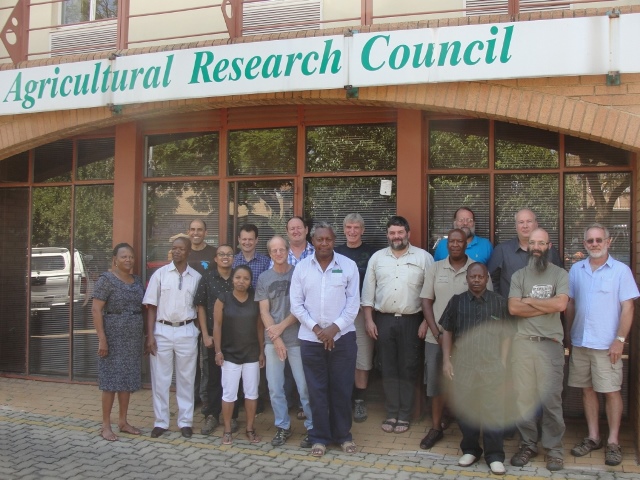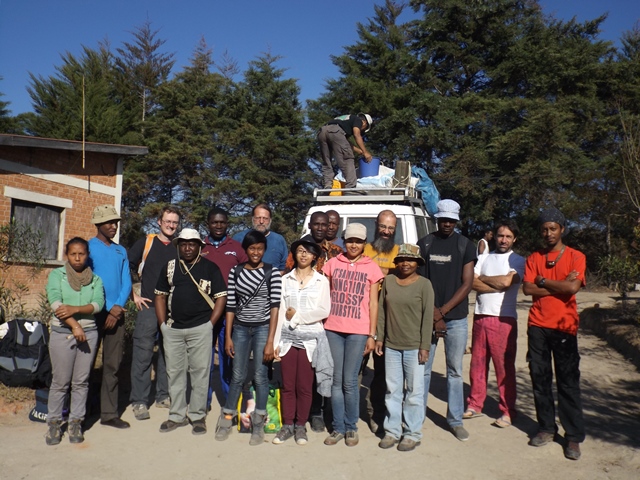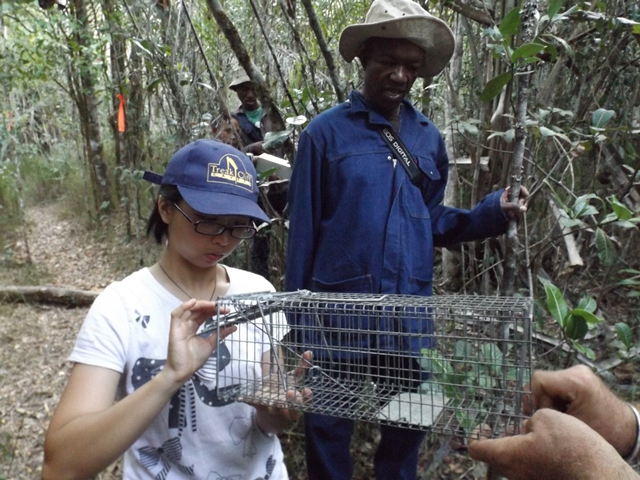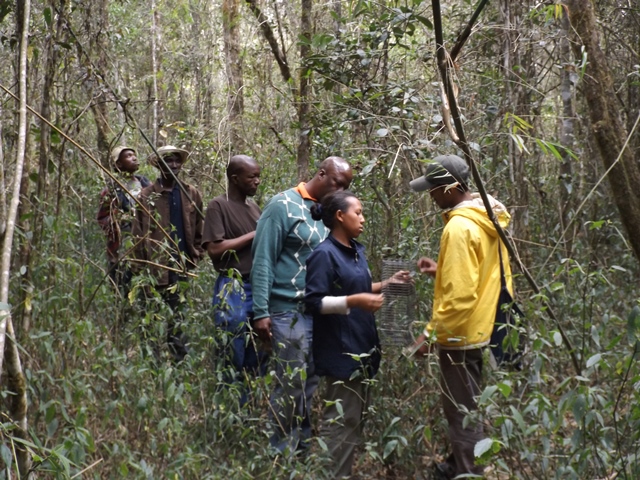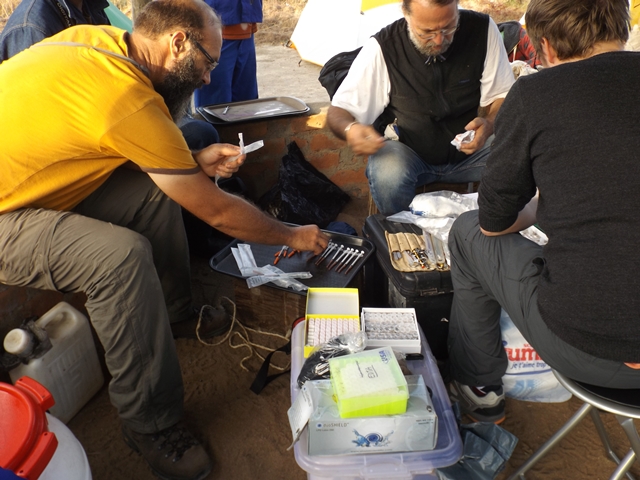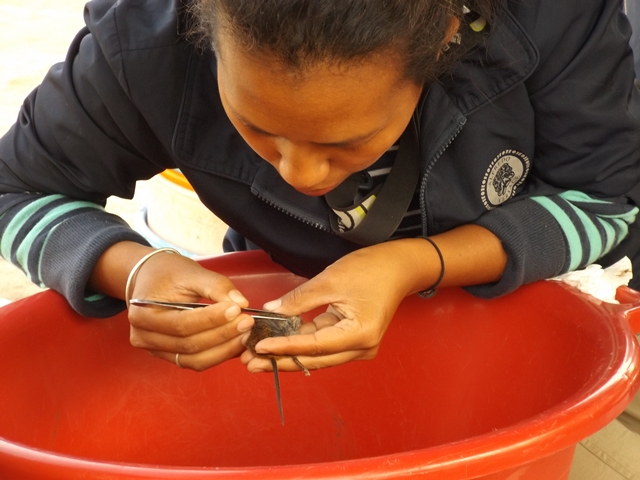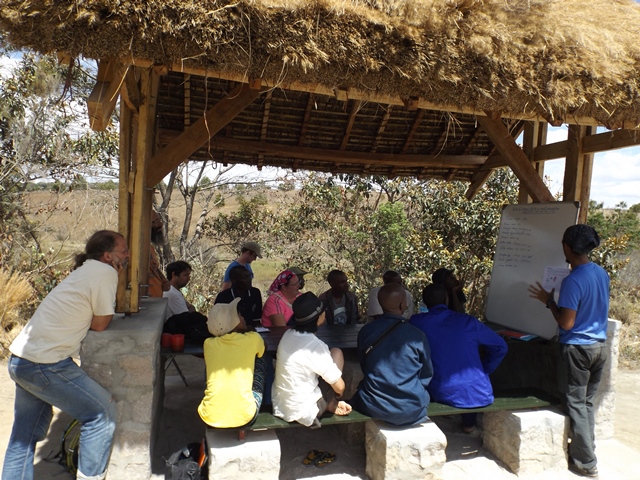What's New?
February 2017
The StopRats team in Swaziland publishes a paper in the open access journal PLoS ONE. This paper shows that Domestic Cats and Dogs Create a Landscape of Fear for Pest Rodents around Rural Homesteads. Although many people claim that keeping a cat around the home will reduce rodent problems, there has actually been very little scientific evidence supporting the use of domestic cats or dogs, or explaining the mechanism of any rodent control. Findings of the research show that one likely mechanism through which rodent problems may be reduced, is the effect that cats and dogs have on the foraging behaviour of pest rodents. Like most prey animal species, rodents are able to detect the presence of predators in their environment. When the risk of predation is perceived to be higher, rodents will spend less time looking for food in that area. Researchers used this phenomenon to understand the landscape of fear around rural homesteads in Swaziland. More details can be found in the NRI press release.
The lead author of the paper, Themb’alilahlwa A. M. Mahlaba from the University of Swaziland, was interviewed on South African radio station 702 about the outcomes of the paper. The interview can be listened to here.
January 2017
StopRats produces four policy discussion papers covering some of the major challenges in controlling rodent pests in Africa and elsewhere.
StopRats rodent population outbreak discussion paper
StopRats stakeholder network discussion paper
StopRats biological control discussion paper
StopRats how to control rodents discussion paper
December 2016
StopRats has produced a practical video on how to control rats. This short video describes some of the problems farmers face with rodent pests and gives an overview on how best to control rodent pests and is available in English, French and Kiswahili.
The StopRats project has its final project meeting in Arusha, Tanzania. The meeting was organised as a scientific conference and was attended by many of the students who have been involved in the StopRats project. Students were able to give presentations about the work they did as part of StopRats, further enabling students by providing them with the experience of giving a scientific presentation and interacting with an international group of scientists. The project has produced a variety of publications, not just scientific publications, but a number of other information sources including videos, posters, radio and internet programmes and a new internet based centre for rodent knowledge and expertise.
With a focus on capacity building and training, StopRats was able to engage with a large number of students and staff from a range of institutions in each country. During the three years of the StopRats project, four field schools were held in different regions of Africa where a total of 81 people attended. More than 40 students were involved in the project where StopRats activities became part of their degree studies with several PhD, Masters, Bachelors and License degree students being supported by StopRats activities and project partners. The great success of StopRats was how it enabled the sharing of knowledge, expertise and experimental samples among partners as well as with many other institutions. This network of experts from different countries and institutions will be one of the main legacies of the StopRats project. Further success on capacity building of civil society groups and the general public was achieved by awareness raising campaigns about rodents, the problems they cause and sustainable solutions where the StopRats teams engaged with private sector companies, local and regional government, rural farming communities in each target country.
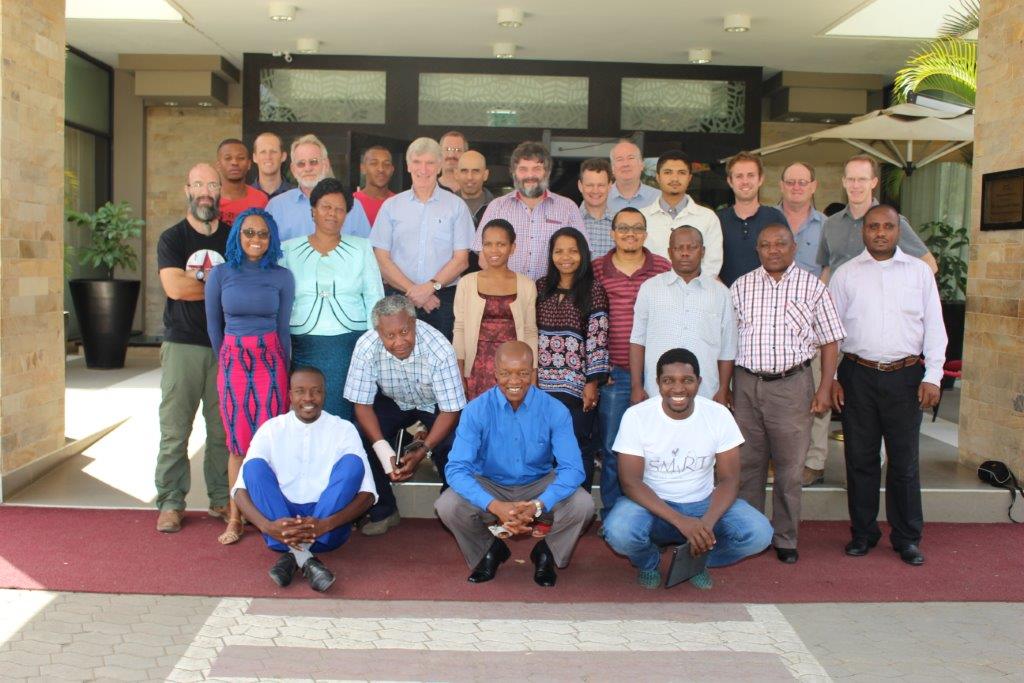

September 2016
The StopRats team in South Africa gives a presentation at the Southern African Wildlife Management Association Symposium on: Sustainable management of wildlife pests: The gerbil problem in balance? which took place at Tzaneen Country Lodge, Tzaneen, Limpopo, South Africa, 18-22 Sept 2016.
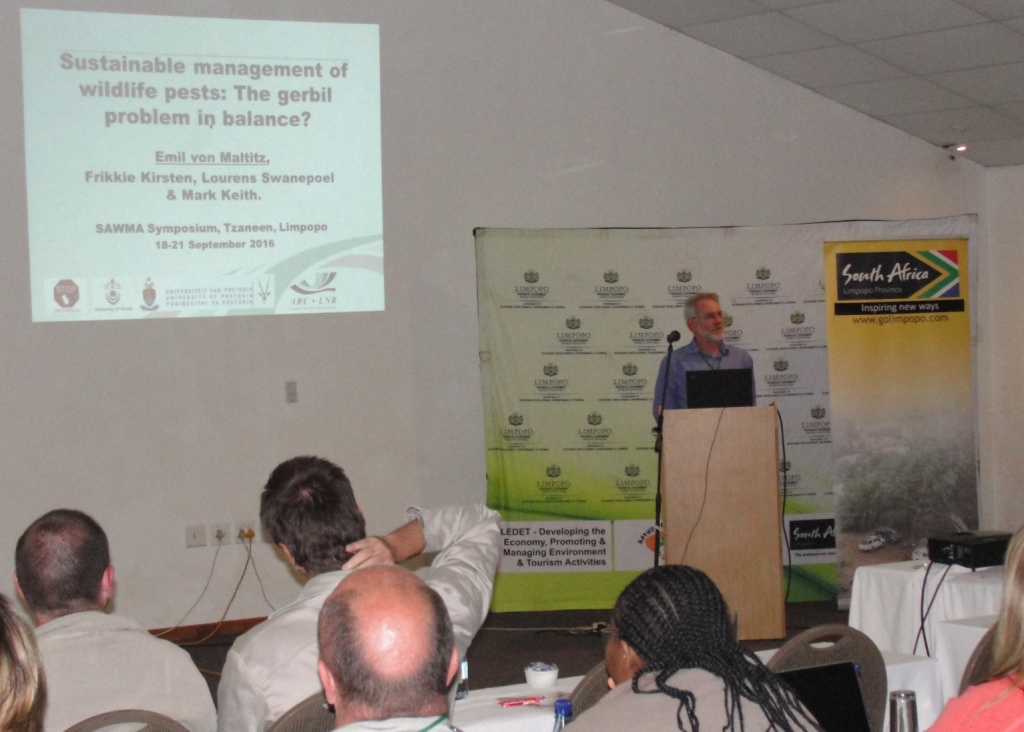
August 2016
StopRats field school in Sierra Leone takes place with 18 people from 11 different institutions (Njala University, Earnest Bai Koroma University of Science and Technology, Ministry of Agriculture, Forestry and Food Security, Environment Protection Agency, Ministry of Health and Sanitation, Tonkolili District Council, Sierra Leone Agricultural Research Institute, Community Animation and Development Organisation, Global Multi-purpose and Development Organisation, the Vahatra Association in Madagascar and Concern Sierra Leone. Participants were able to sample a wide range of small mammal species that are found in the proximity of the Kangari Hills Forest Reserve. Different methods of trapping were demonstrated including transect-line trapping, grid setting, animal marking through toe clipping and data entry into capture-mark-recapture programmes. Habitat surveys, trapping with sherman traps and snap traps in both primary and secondary forests.
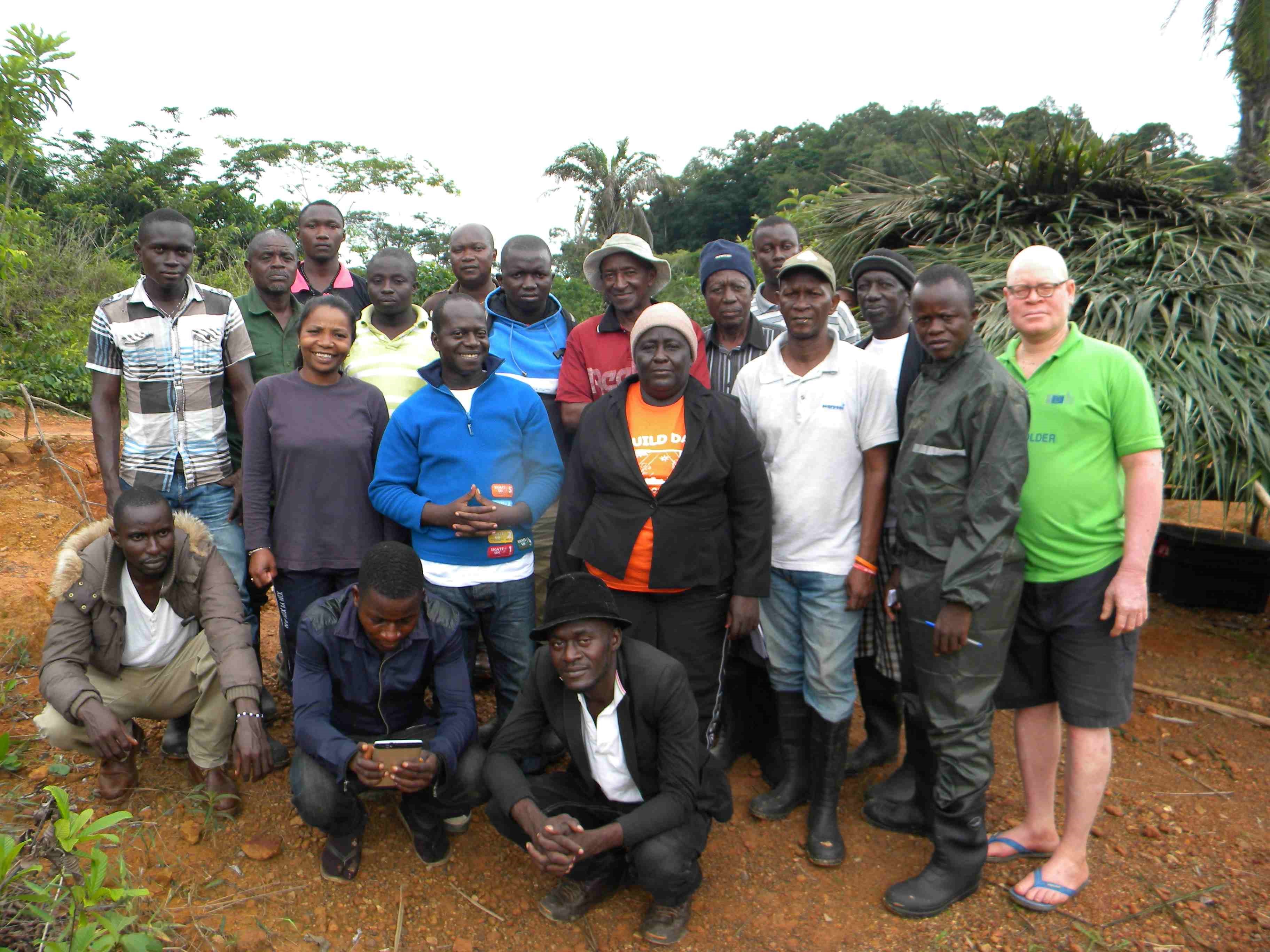
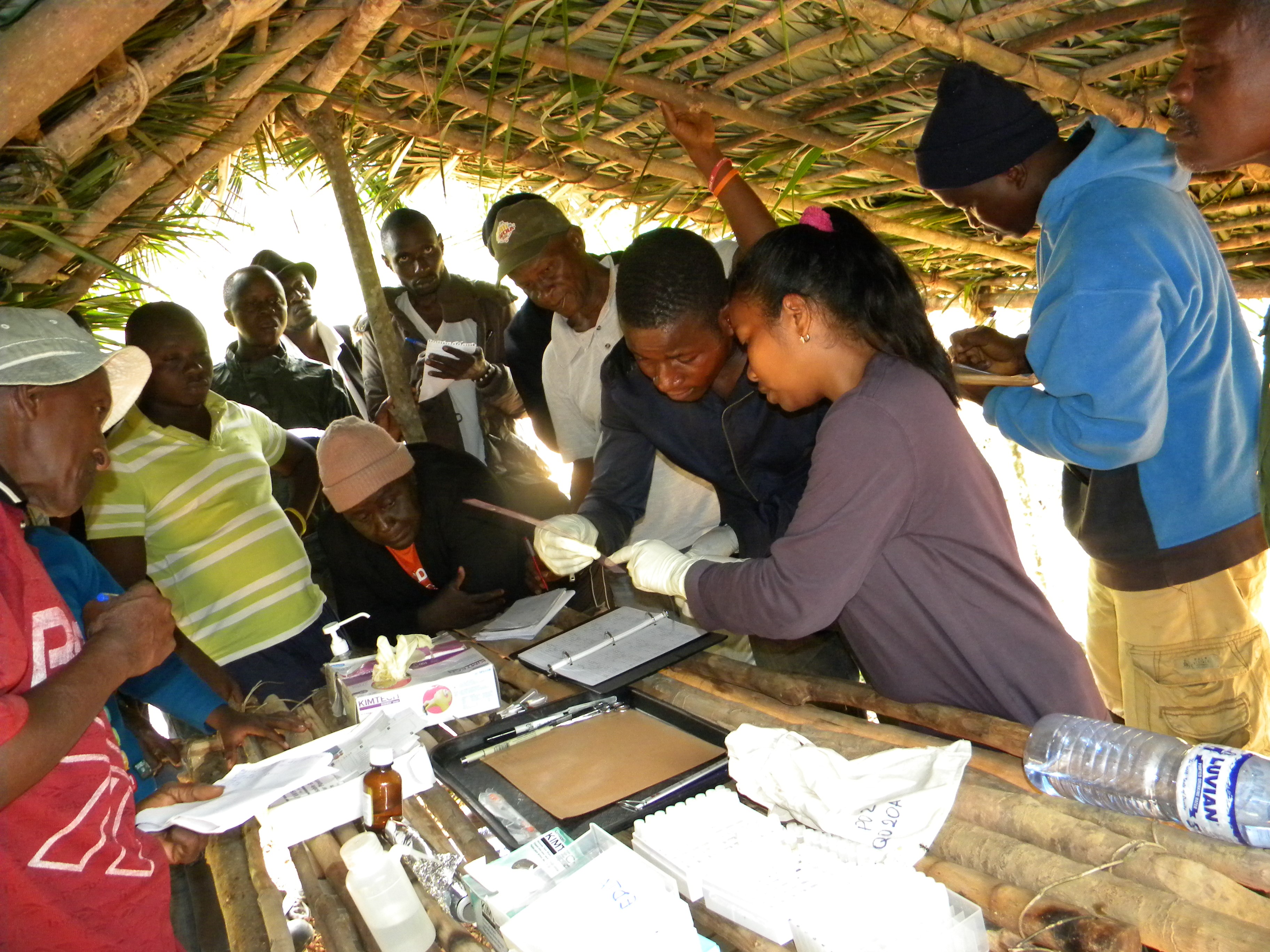
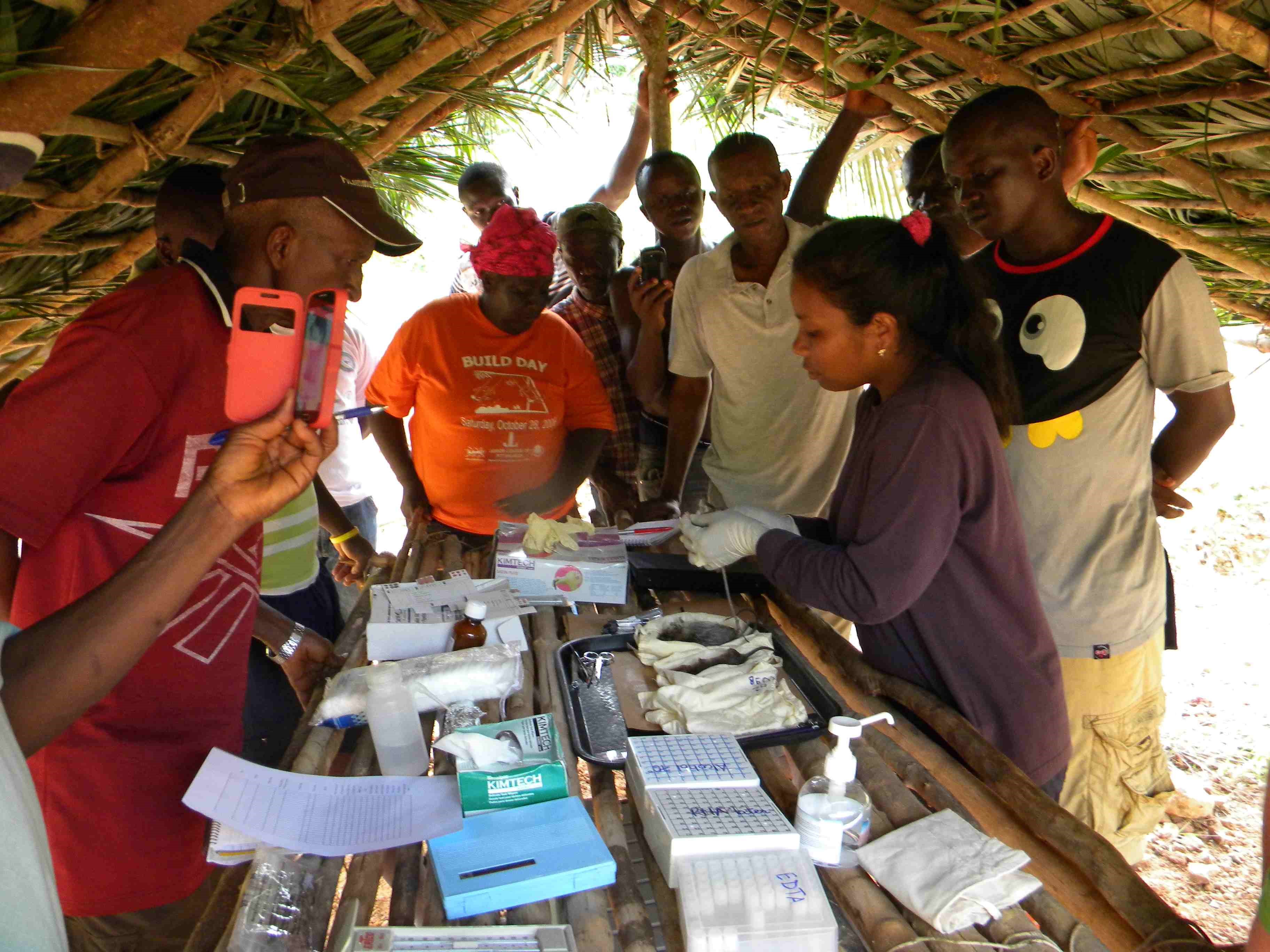

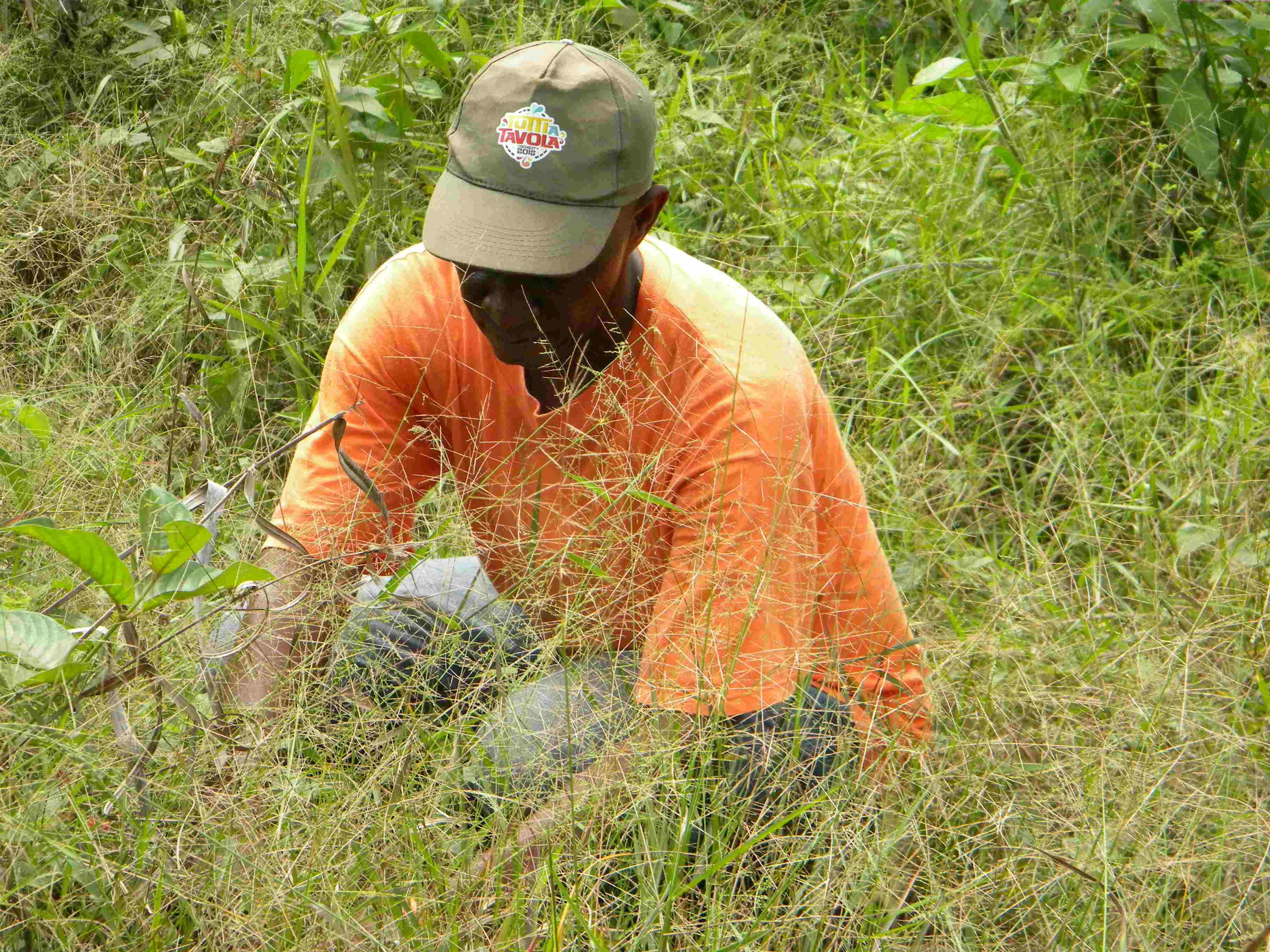
July 2016
StopRats team in Swaziland trains 50 extension staff from the Department of Agriculture on rodent biology and management. StopRats lead coordinator, Professor Steven Belmain from the Natural Resources Institute together with colleagues from the University of Swaziland run a field course that provides agricultural extension staff with basic knowledge on rodents, the tools and technology available and how to implement sustainable rodent management. The group visited nearby communities where rat trapping was carried out, using the captured rodents to show basic rodent breeding biology and how the fast breeding rate of rodents makes them such a challenge to control.
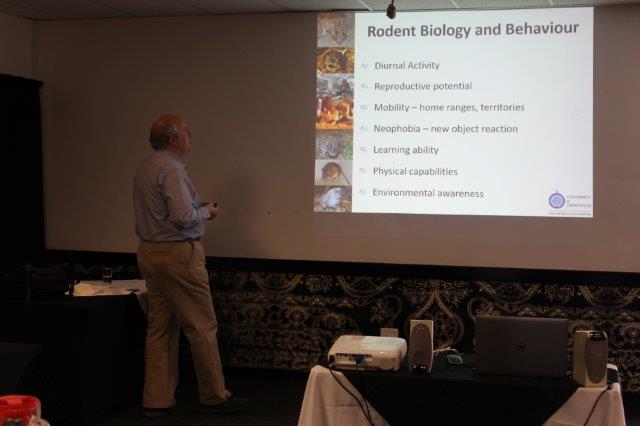
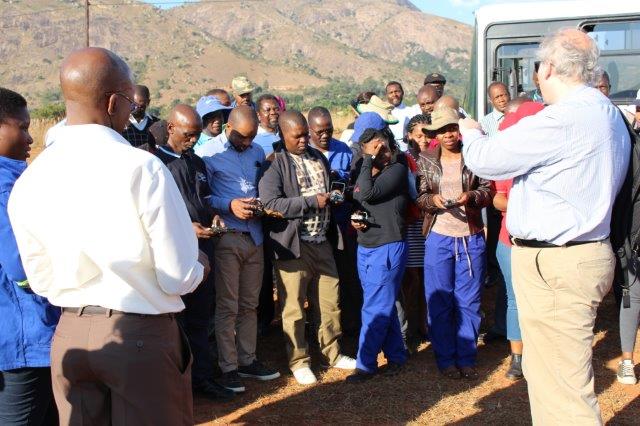
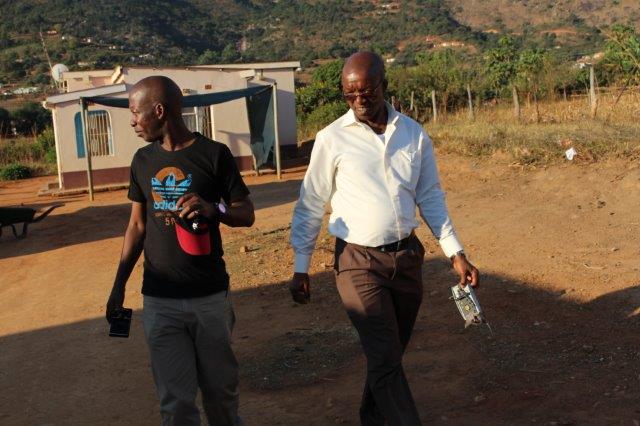
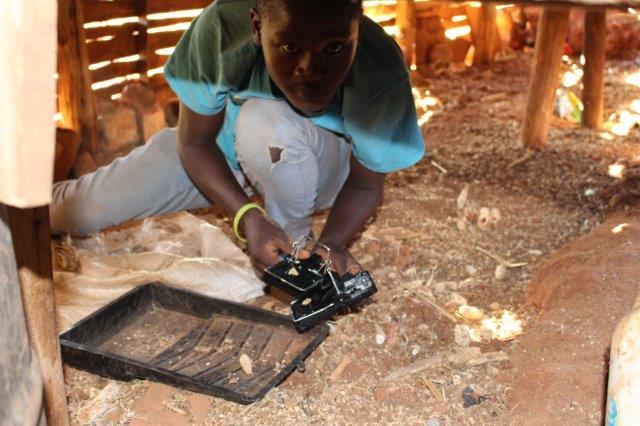
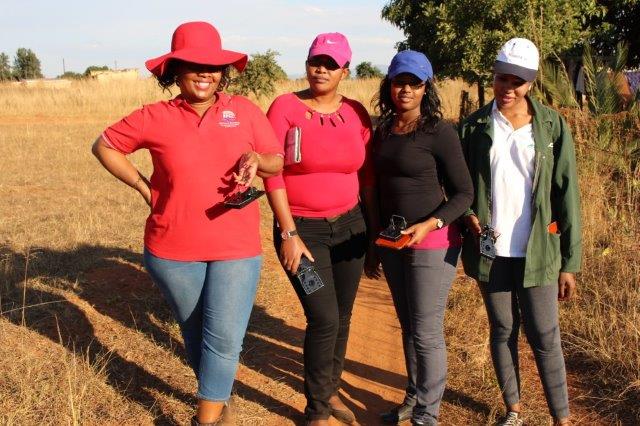
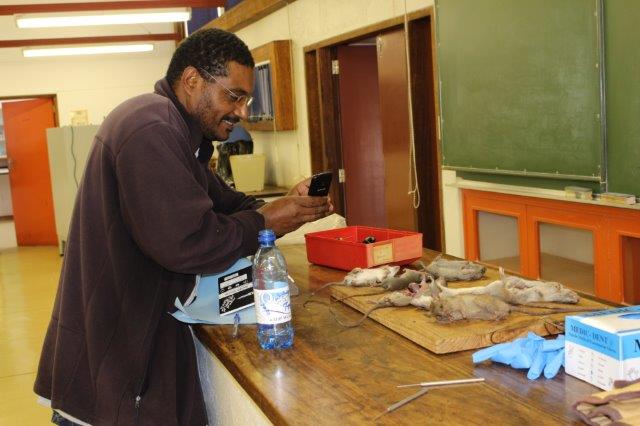
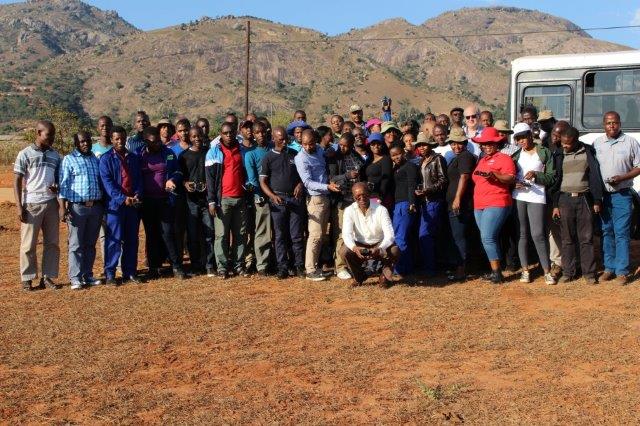
June 2016
A scientific training and capacity building workshop takes place at the University of Namibia. StopRats lead coordinator, Professor Steven Belmain from the Natural Resources Institute, delivers a series of lectures to a group of staff and students from the University of Namibia and the National Museums of Namibia. Topics covered included: how to write and publish scientific papers, ecological and experimental design methods and tips for giving a scientific presentation. This was followed by all workshop attendees giving short presentations, followed by immediate feedback to help presenters improve their presentation skills.
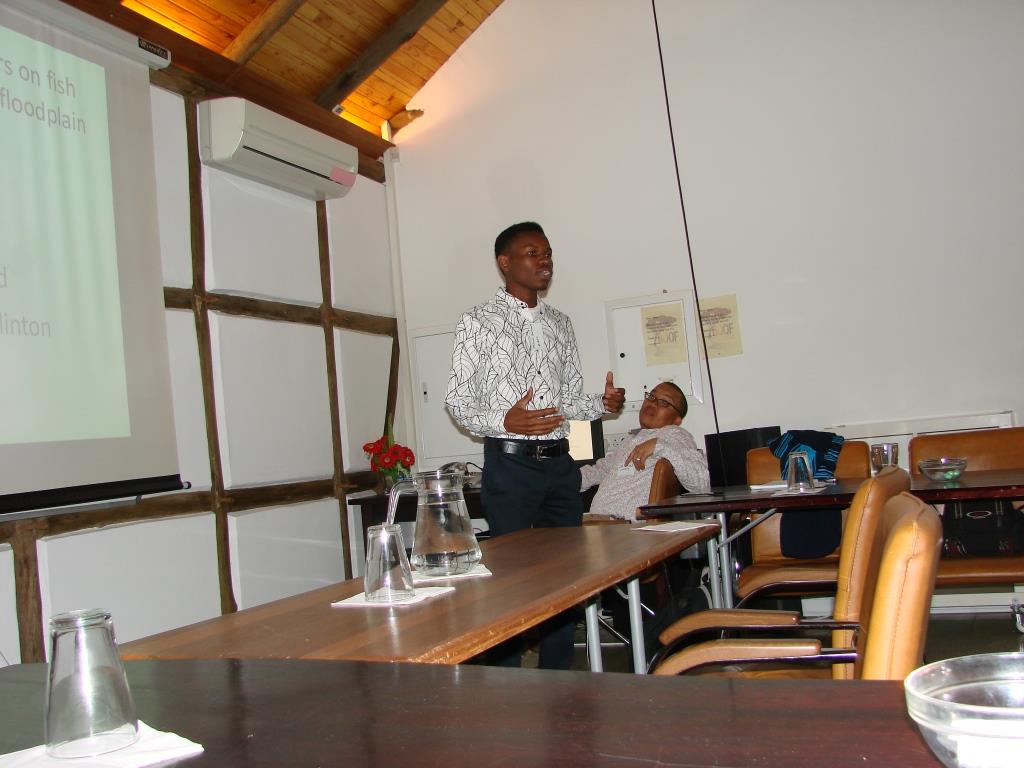
StopRats partners at the ARC-PPRI attend the pest control private sector IRAC group on synthetic pesticide resistance and make a presentation on the StopRats project, highlighting efforts to engage with the commerical pest control sector to improve rodent management.
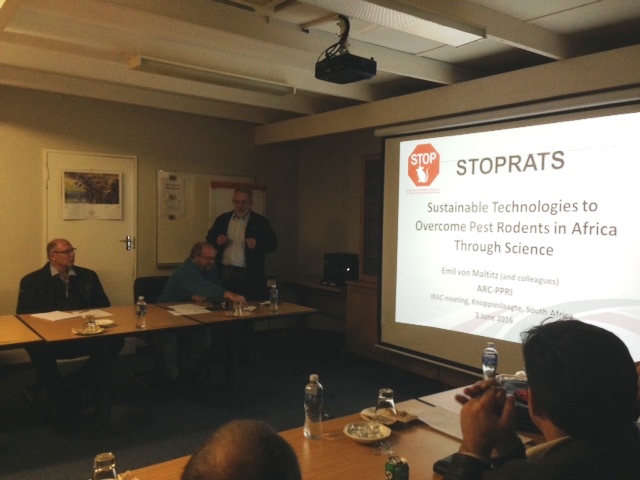
May 2016
StopRats partners at the ARC-PPRI in South Africa hold a final meeting with community members involved in demonstration trials evaluating hermetic bags to protect grain against rodents. Feedback from farmers agreed with the scientific results obtained indicating that the hermetic storage bags do offer a higher level of protection than the typical woven poly bags traditionally used. Rodents do not appear to gnaw through the hermetic bags, probably because they can not smell the grain inside the bags. The hermetic bags were also very good in protecting the grain against insect attack.
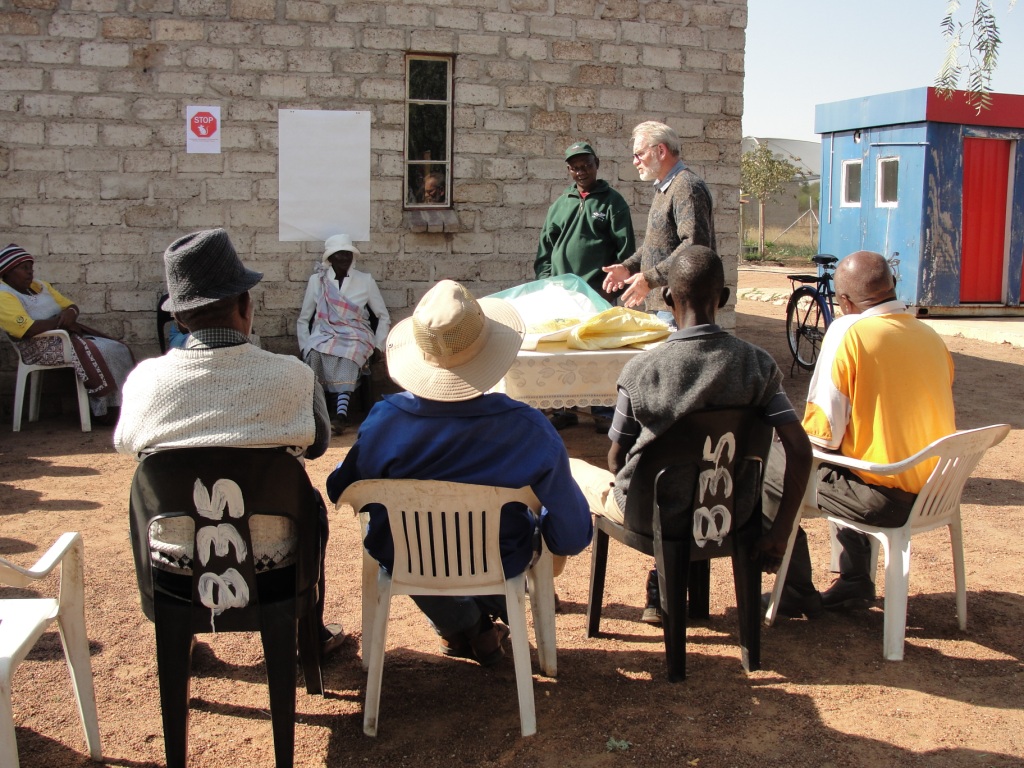
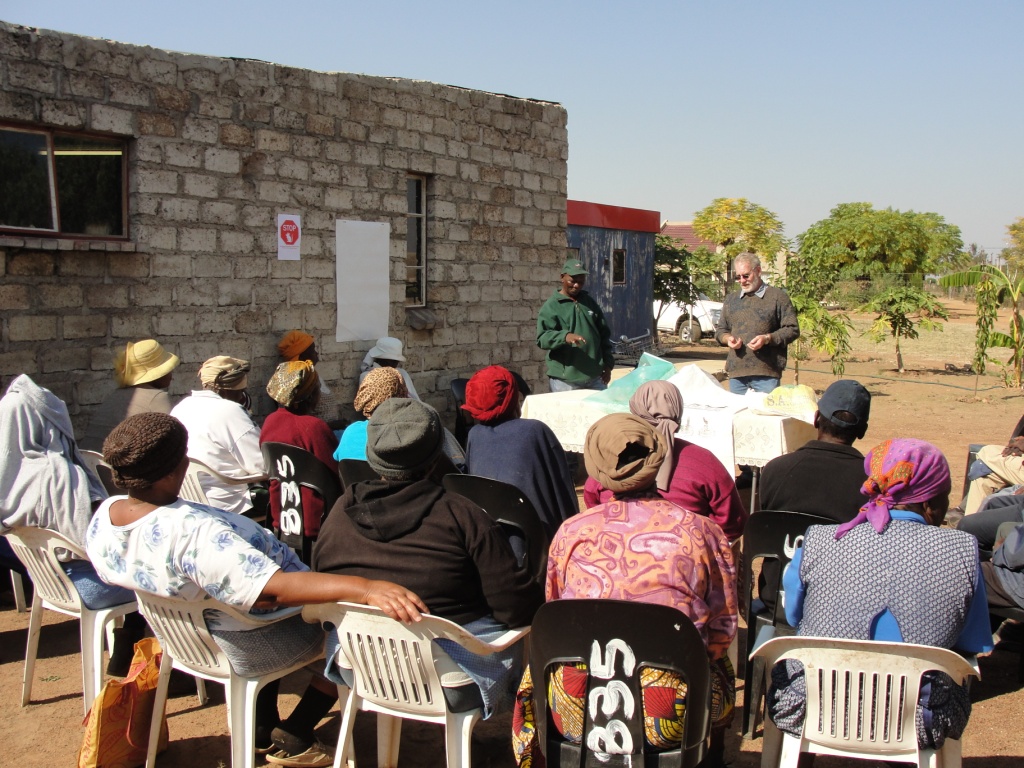
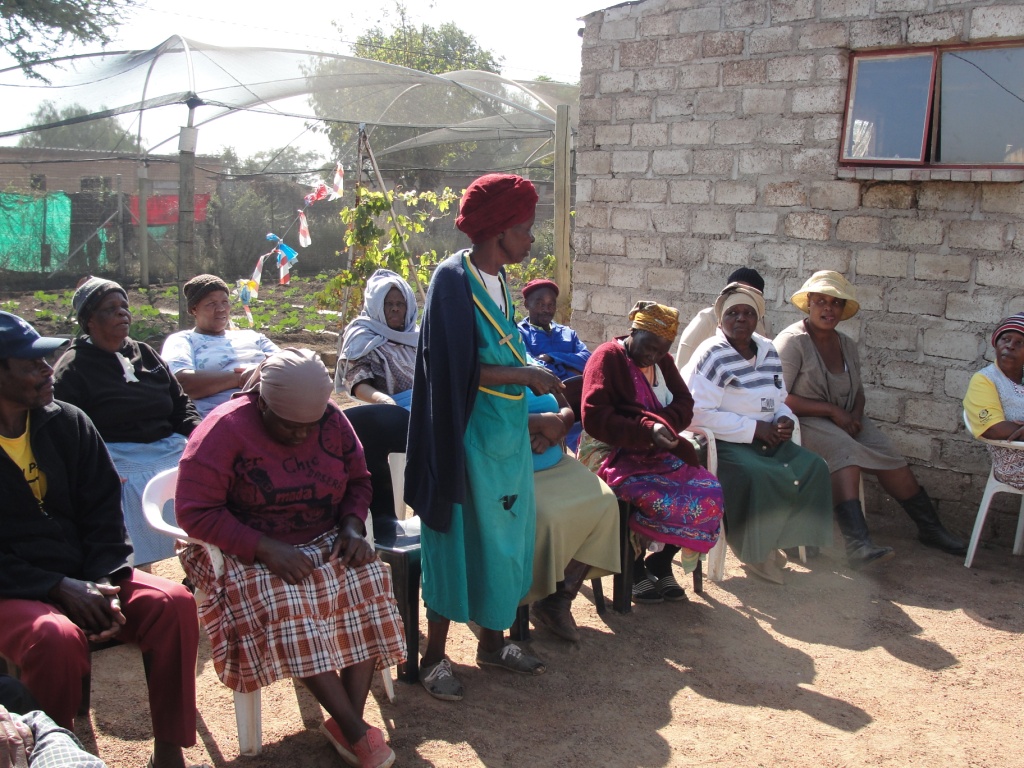
March 2016
StopRats researchers in South Africa publish their work in an agricultural sector magazine, SA Grain. The article, Gerbils: Ecologically based rodent management in maize can be read online or downloaded here.
Project partner Frikkie Kirsten also gave an interview (in Afrikaans) about the work to Elsenburg Radio. The mp3 of the programme can be downloaded here.
February 2016
The StopRats team has its 2nd annual review meeting in Antwerp, Belgium, hosted by project advisory board team member Prof. dr. Herwig Leirs at the University of Antwerp. The project is making great success in demonstrating innovative technologies for rodent management in Africa and engaging with a wide range of stakeholders.
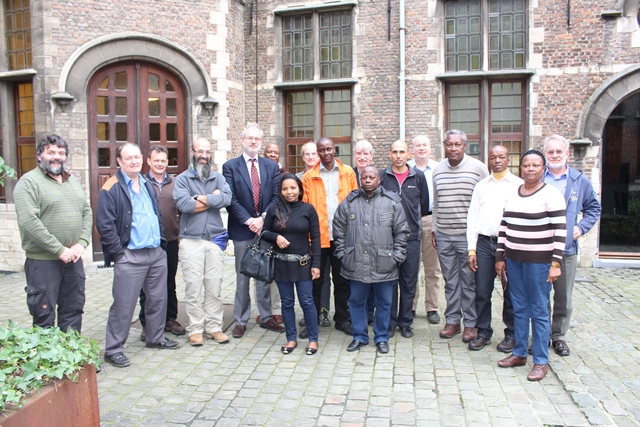
December 2015
Research on the rodent borne disease Leptospirosis is published in the open access journal PLoS Neglected Tropical Diseases. This work, partly supported by the StopRats project, provides some insight as to why the disease remains poorly diagnosed in Africa. Using locally circulating leptospire serovars leads to a much increased detection rate. Furthermore, the work provides clear evidence that some pathogenic serovars can be found in a wide range of reservoir hosts including rodents, shrews, bats, cattle, pigs and fish. The open access article can be found at Leptospira Serovars for Diagnosis of Leptospirosis in Humans and Animals in Africa: Common Leptospira Isolates and Reservoir Hosts
November 2015
University of Pretoria post-grad student Lushka Labuschagne has completed her studies on the potential of Barn owls, Tyto alba, as bio-control agents of agricultural rodent pests. Below are some photos from her research and field work. Details of her work were recently published in an industry magazine, Farmers' Weekly - The Barn Owl: Secret weapon in the fight against rodents.
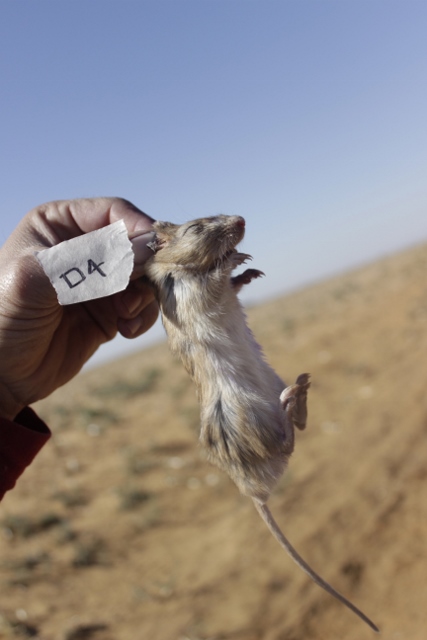
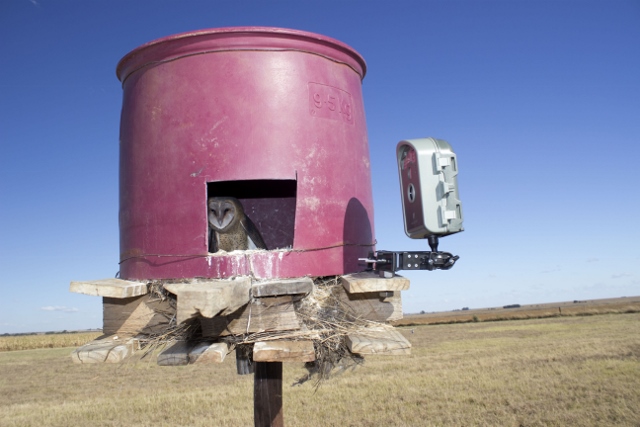
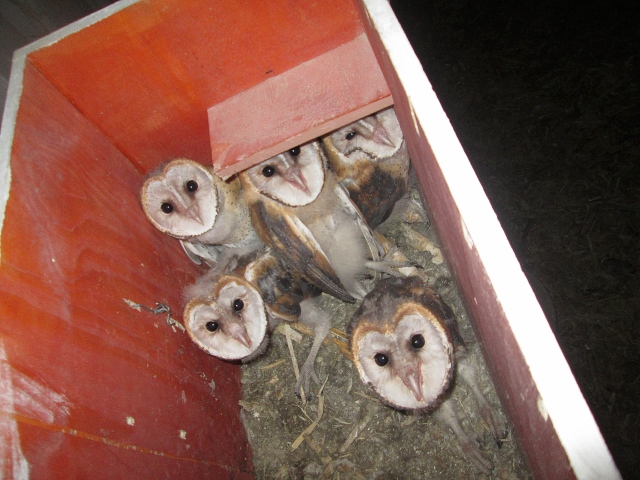
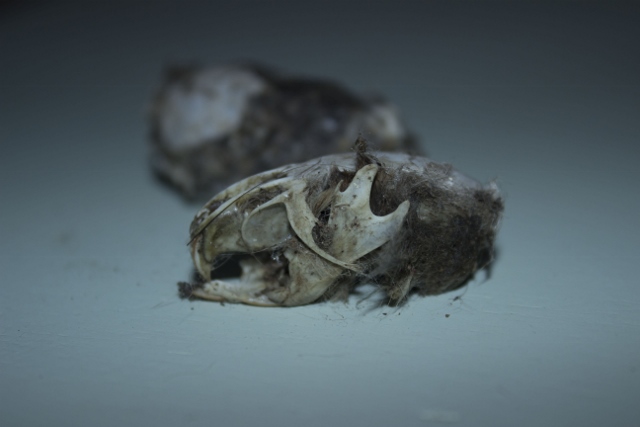
October 2015
Hermetic storage demonstration trials were set up with farmers at Block Mokone, Stinkwater, Gauteng, South Africa. ARC-PPRI staff member, Fanie Malebana, explained the trial to the members of the maize producers club. The bags were then placed in position where the householders would store their maize. The bags are promoted to control insect pests but it is not known whether they protect against rodents as well.
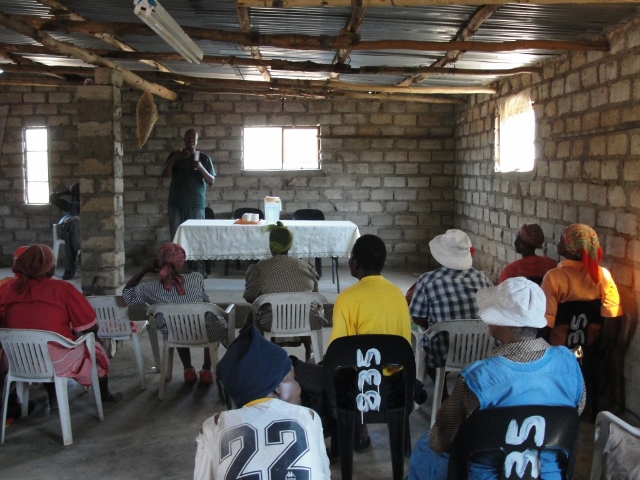
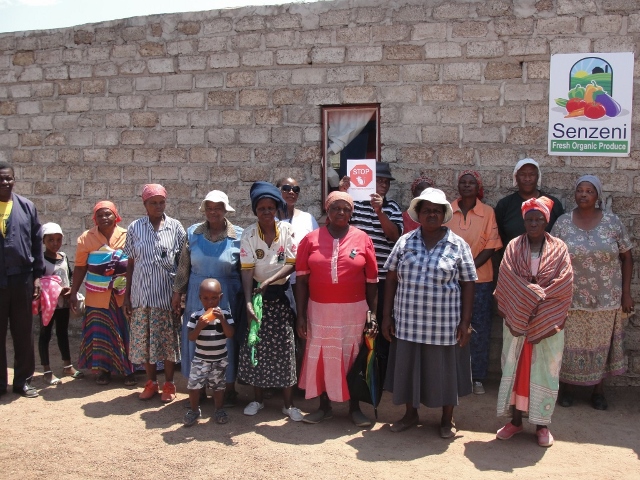
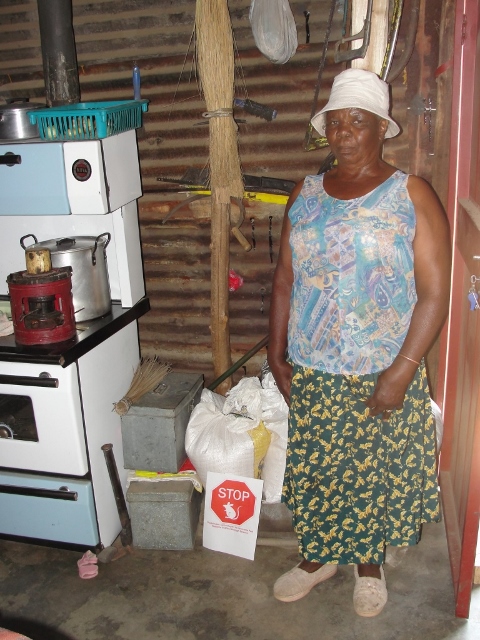
September 2015
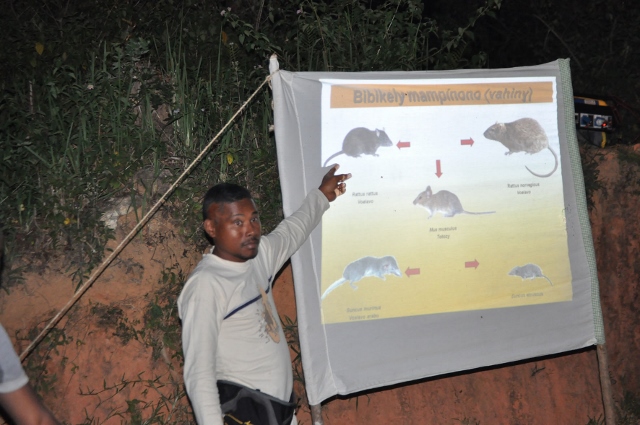

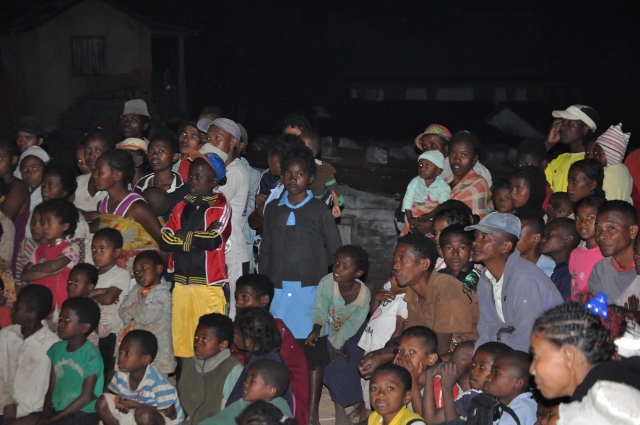
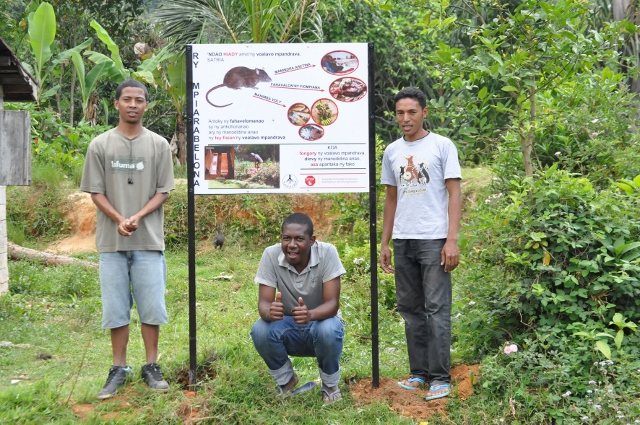
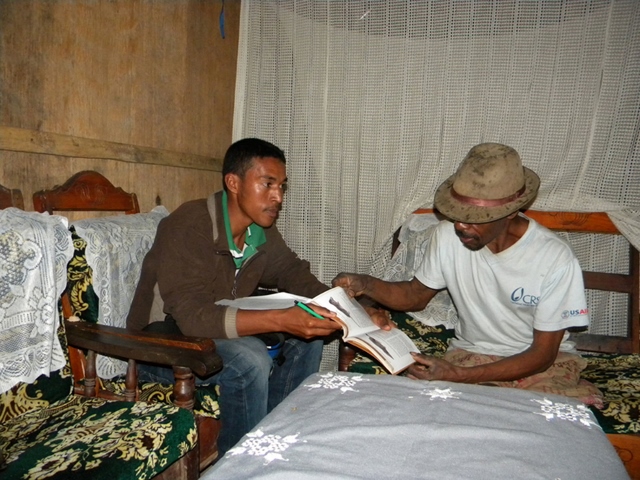
August 2015
A StopRats field school was held from the 24th – 31st August 2015 in the Selous Game Reserve in Tanzania. The field school aimed at providing training in a number of techniques that are highly relevant to the development of ecologically-based rodent management. The activities included carrying out habitat surveys, trapping animals, learning about aspects of their natural history, taxonomy, physiology and sample collection for disease screening. The field school was attended by participants from Uganda, Madagascar, Ethiopia, Belgium and Tanzania.
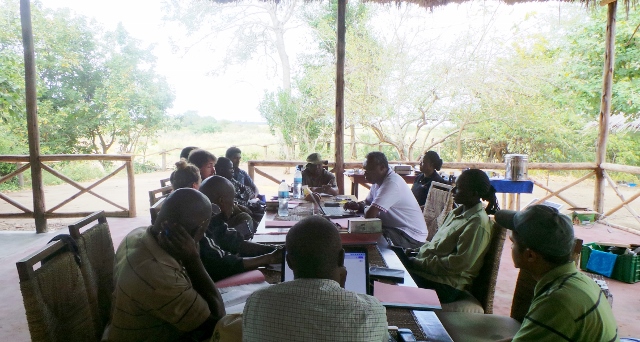
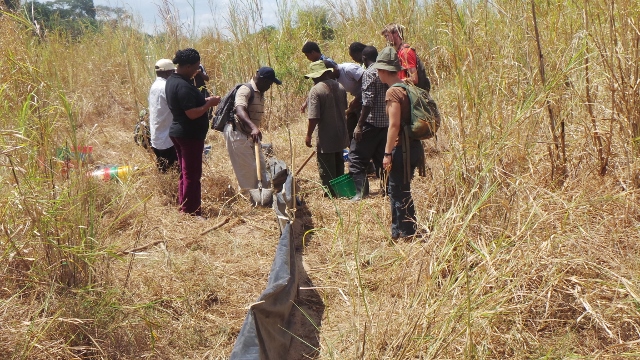
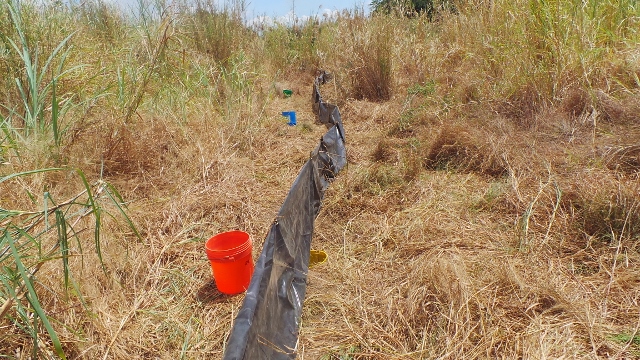
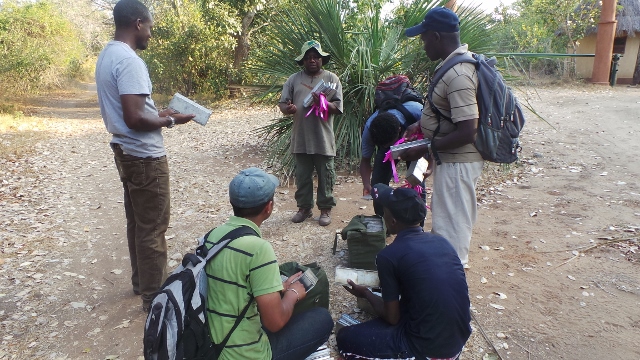
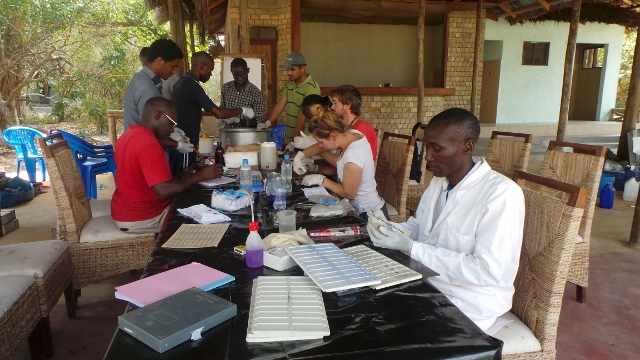
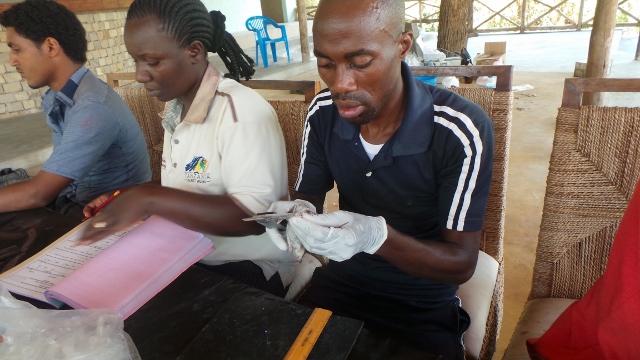
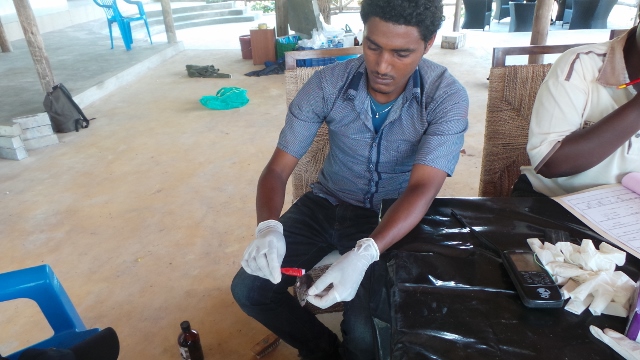
July 2015
An article appears in the One Health Initiative Newsletter: African researchers adopt One Health to Stop Rats
Researchers in Namibia set up farmer demonstration trials on new technology that may be able to prevent rodent damage to stored grain. Hermetic bags designed to control stored product insect pests may also work to control rodent damage. Demonstration trials will monitor grain stored in farmers houses over several months using this new technology and wil compare them to traditional storage to see whether the bags do indeed protect stored food.
June 2015
The Pest Management Centre of Sokoine University of Agriculture holds the first of three Stakeholder meetings in Tanzania. Together with the Tanzania Society of Agronomists, 98 agronomists attended a 2-day meeting covering issues of rodent ecology, damage assessment and the technology tools and strategies for rodent management.
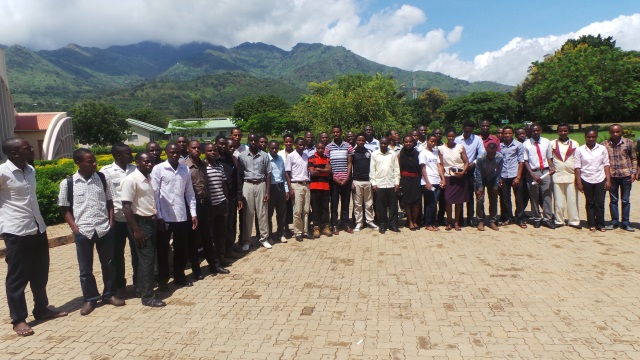
May 2015
An article about the StopRats project appears in TANA planète, a popular press magazine in Madagascar
An article about the StopRats project appears in Plant Protection News a newsletter of the ARC-Plant Protection Research Institute. The article (pages 7-8) summarises some of the project's recent activities in southern Africa.
The StopRats team in Swaziland engages with the country's Minister for Agriculture, the Hon. Moses Vilakati, as part of efforts to raise the profile of rodent pests affecting agriculture and food security in the Kingdom of Swaziland. As Chief Guest at a stakeholder meeting held on the 6th of May 2015, the Minister highlighted the severe problems faced by the country's farmers and communities due to rodent damage to crops and losses and contamination of food after harvest. The meeting was hosted by the University of Swaziland, and the Pro-Vice Chancellor of the university, Prof V.S.B Mtetwa, highlighted the need for researchers to strongly engage with the practical issues faced by Swazi farmers. The meeting was attended by approximately 100 staff from the Department of Agricultural and Extension Services. StopRats project leader, Prof Steven Belmain, presented a seminar to attendees on rodent pest problems, the history of research on rodents in Swaziland and why it is nessary for researchers, extension agents and farmers to work together to overcome the many problems caused by rodents to people's livelihoods. Workshop participants spent the afternoon discussing the kinds of rodent problems faced, the limitations of current local knowledge and how improved knowledge and access to technology could improve the country's ability to sustainably manage rodent pest problems.
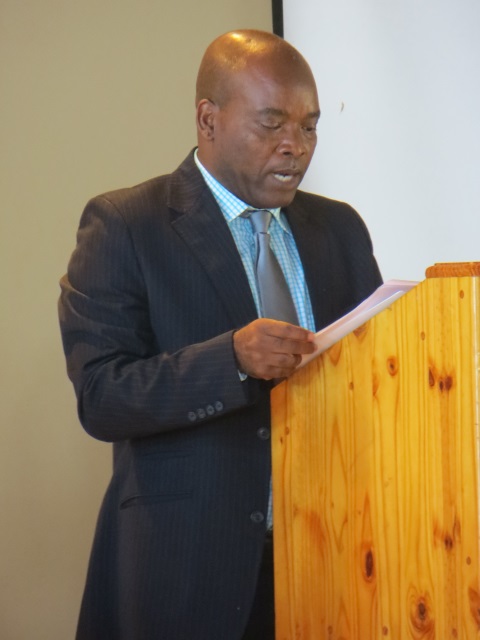
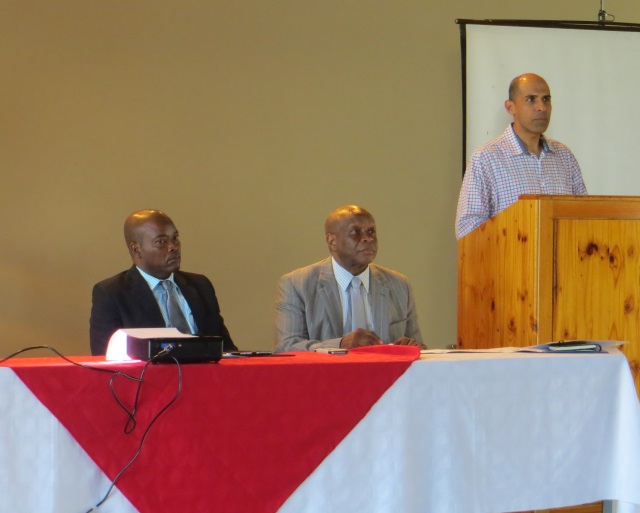
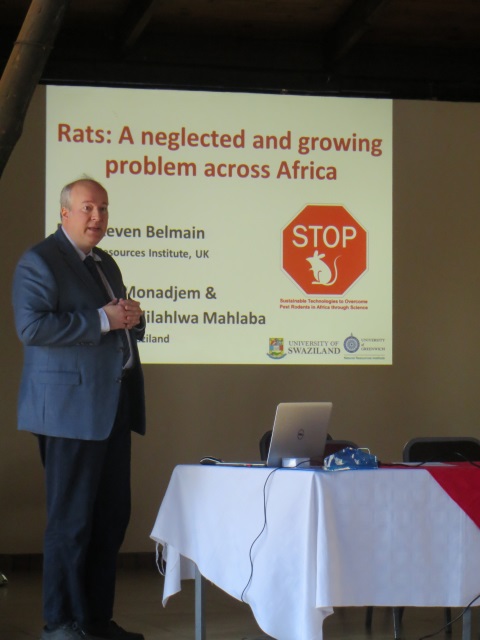
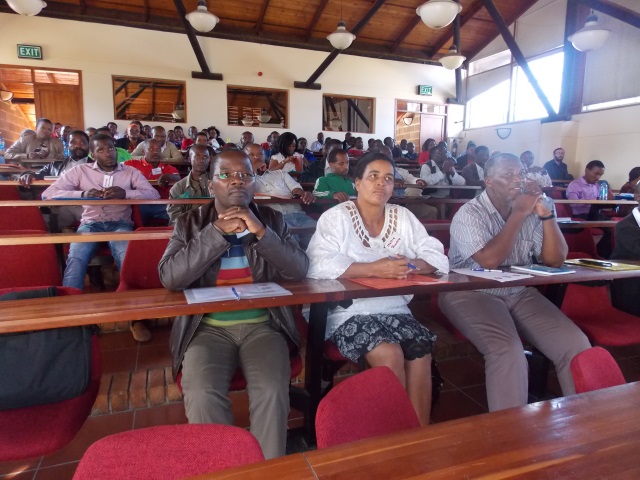

April 2015
The 12th African Small Mammal Symposium took place in Madagascar. Several StopRats team members were in attendance. Professor Belmain provided an overview talk about StopRats, and further aspects of the project were discussed in other talks and posters. The conference website gives more details.
Professor Belmain presents the StopRats project at the 12th African Small Mammal Symposium, Mantasoa, Madagascar, 12-17 April 2015.
March 2015
The StopRats team met for its first annual review meeting, hosted by the ARC-PPRI at their Hatfield, Pretoria headquarters office. Partners presented their achievements over the first year and discussed the planned activities going forward.
A StopRats field school in South Africa was held from the 1st to 8th March 2015. 18 students from Germany, South Africa, Madagascar, Swaziland and Namibia participated in a field ecology field school at Lajuma Research Centre in the western Soutpansberg Mountains of Limpopo hosted by the University of Venda's SARChI Chair and funded by the StopRats project. Field activities and lectures led by various experts centred on projects involving small mammals (rodent, shrew and elephant shrew) trapping programmes, bats (acoustic, harp trap and mistnet surveys), birds (mistnetting and bird ringing), samango monkeys (scan samples to conduct activity budgets of resident troops), and parasitology (microscopic analysis of ectoparasites and endoparasites on small mammals and bats). Students ranged from honours-level to PHD-level and the feedback was overwhelmingly positive. From some students this field school was the first opportunity to practically apply theoretical knowledge previously based only on classroom experiences.
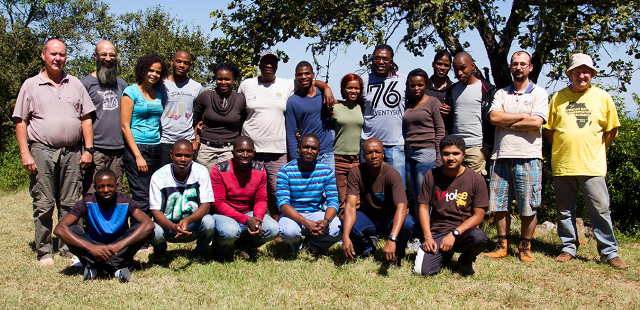
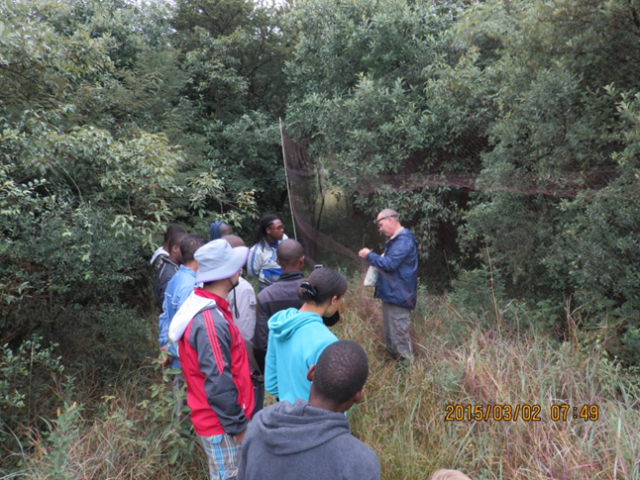
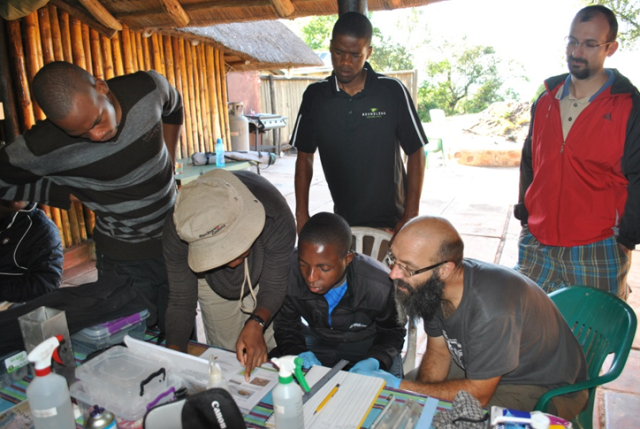
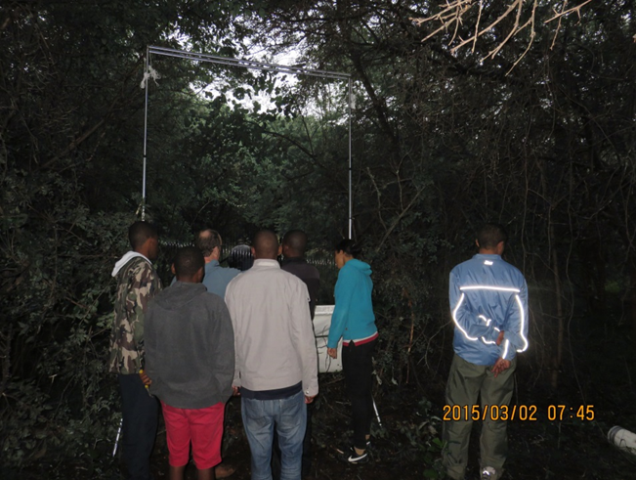
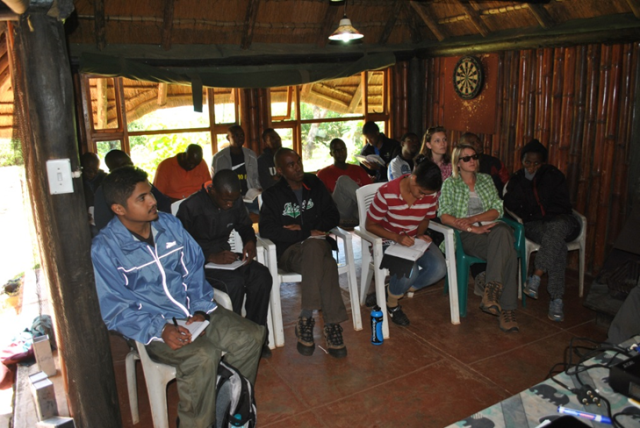
February 2015
A StopRats stakeholder workshop for Ecologically-Based Rodent Management (EBRM) was held in South Africa over the 16th to 17th February 2015. StopRats partners from the University of Venda's SARChI Chair and the Agricultural Research Council-Plant Protection Research Institute organised a two-day workshop to bring together stakeholders from affected rural communities in Limpopo Province (18 residents of Vyeboom and Ka-Ndengeza villages where StopRats activities are taking place), the pest control industry, research organizations and the Limpopo Department of Agriculture. The 30 participants were organized into groups representing the two villages and then a third group representing industry, research and government. Translators were present to capture the responses of rural farmers to three questions: 1) are rodents a problem?; 2) how do you solve this problem; 3) whose problem is it? This approach elicited a real understanding of the very serious impact of rodents on individual livelihoods and human health in rural villages. Pathways to improve extension services and educational material were discussed with the government and industry groups. The ARC has developed "plant clinics" to advise rural communities on crop protection and this approach will be trialled in Limpopo to address rodent crop damage aspects. A report will be drafted with feedback to local communities expected by mid-2015.
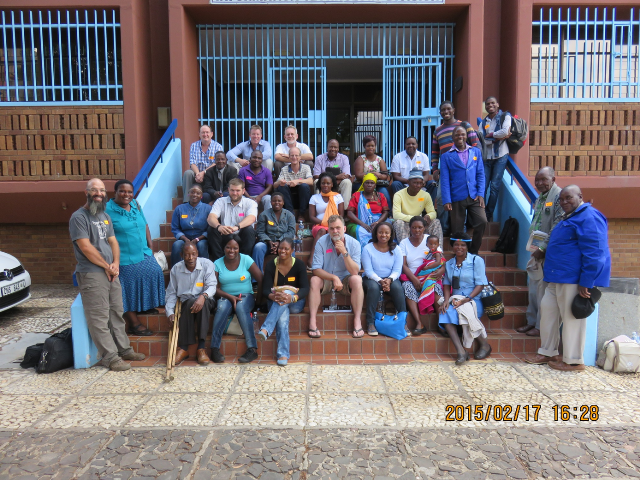
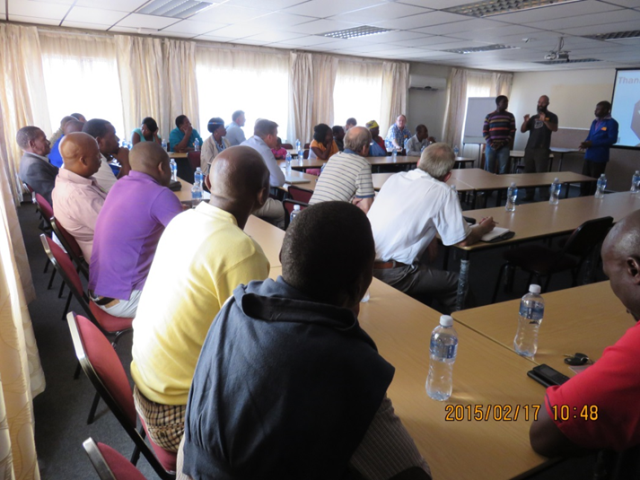
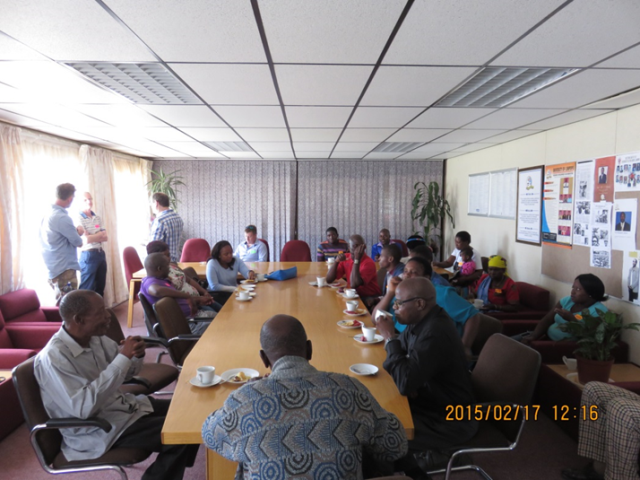
January 2015
Awareness raising campaigns about rodents, the problems they cause and how new technology and innovations can help overcome such problems are important components of the StopRats project.
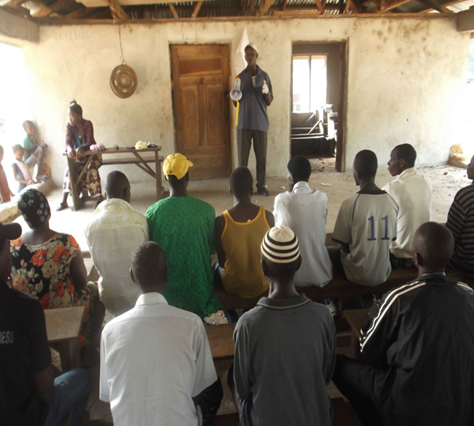
StopRats partners such as Concern in Sierra Leone have been actively engaging with communities.
December 2014
Demonstrating new technology to farmers and building their capacity to develop appropriate interventions is happening across the StopRats countries. One important aspect of rat damage repeated raised by farmers is damage to stored grain. New hermetic bags are being developed largely to stop insect pests in stored commodities but it is not known whether the bags can equally protect grain from rat damage. Some StopRats partners are demonstrating these bags with farming communities as a way to determine whether they can be an appropriate technology to prevent rodent damage. So far, results are promising.
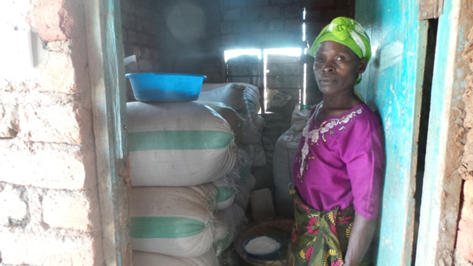
A farmer in Tanzania trying out new technology to demonstrate whether hermetic bags prevent rodent damage.
October 2014
The first StopRats field school took place in Madagascar. The field school was attended by students and early career researchers from Namibia, South Africa, Swaziland, Tanzania, La Reunion and Madagascar. Below are some photos from the event.
August 2014
 The 5th International Conference on Rodent Biology and Management (ICRBM) took place at Zhengzhou, Henan Province, China.25–29 August 2014 Visit the ICRBM website for more information. A presentation giving an overview of the StopRats project was presented by Prof Steven Belmain.
The 5th International Conference on Rodent Biology and Management (ICRBM) took place at Zhengzhou, Henan Province, China.25–29 August 2014 Visit the ICRBM website for more information. A presentation giving an overview of the StopRats project was presented by Prof Steven Belmain.
June 2014
As many of the partner countries involved carry out grassroots stakeholder meetings with communities, the StopRats team is able to show that the problems people face with rodents are quite varied and often severe. Across the African continent, people are mentioning similar things. Some results from some of these surveys are found below.
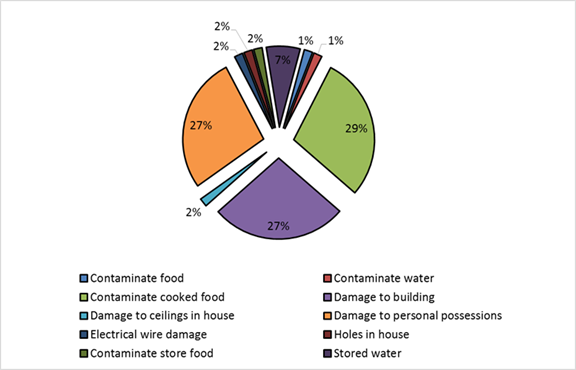
Household damages caused by rodent pests (% of households interviewed)
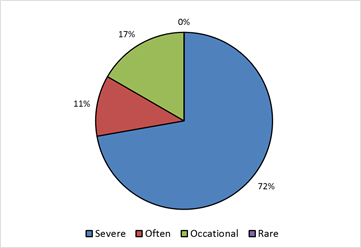
Occurrence of rodent pest damage during crop storage
May 2014
Stakeholder workshop and community demonstration trials in Sierra Leone
Sierra Leone had its official launch through two meetings with stakeholders, one in Freetown complete with StopRats birthday cake and a second meeting in the project target area of Magburaka where meetings were held with local communities and several researchers from universities and research institutes.
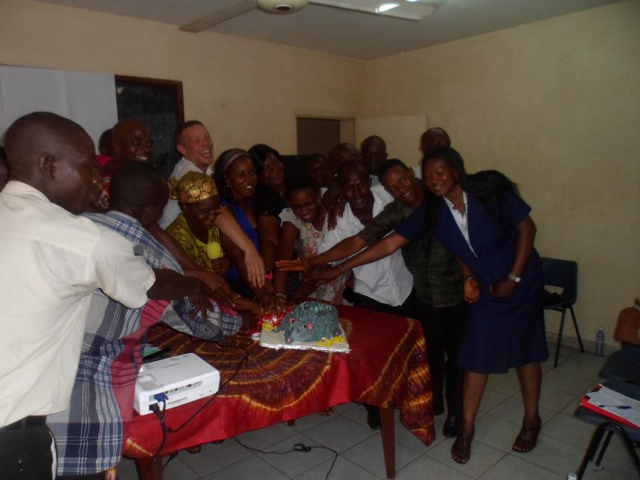
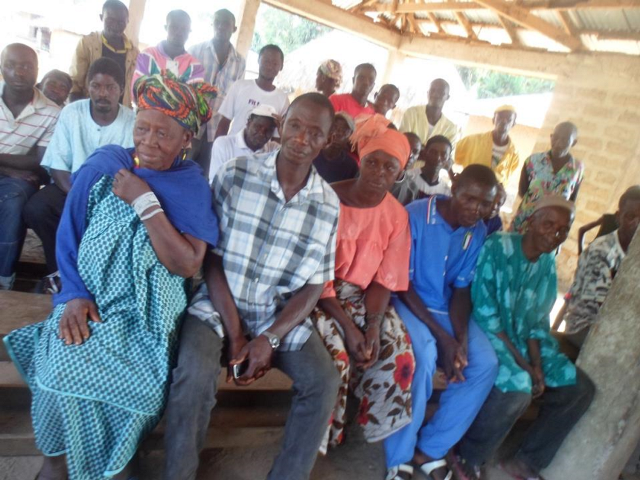
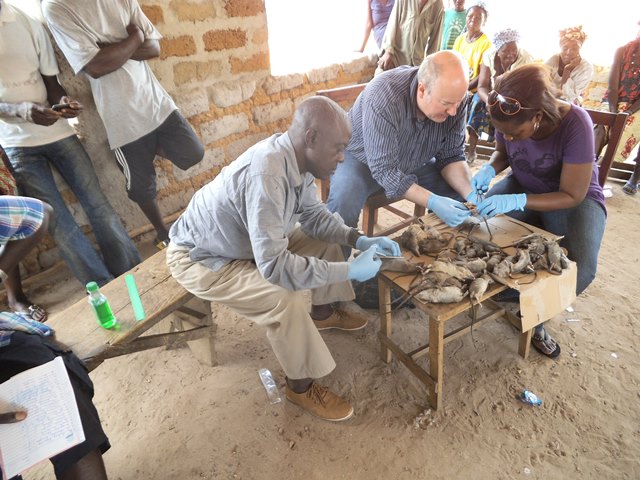
March 2014
Scientific training worshops held in South Africa, Swaziland and Tanzania
One of the aims of the StopRats project is to help young African scientists develop new innovations and generally become better scientists to help solve the problems facing Africans regarding issues such as food security and climate change whilst managing their natural resources more effectively. With this in mind a series of lectures were developed and held with StopRats partners at the University of Venda in South Africa, the University of Swaziland and Sokoine University of Agriculture in Tanzania covering topics on research methods, experimental design, scientific writing and presenting skills. More courses are planned throughout the StopRats project timeframe.
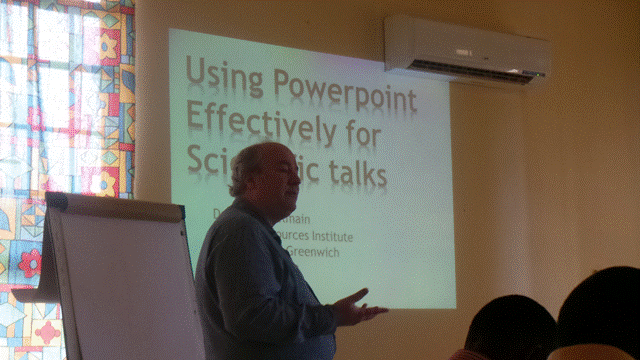
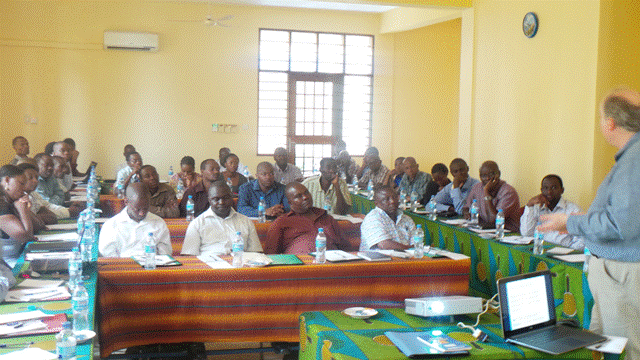
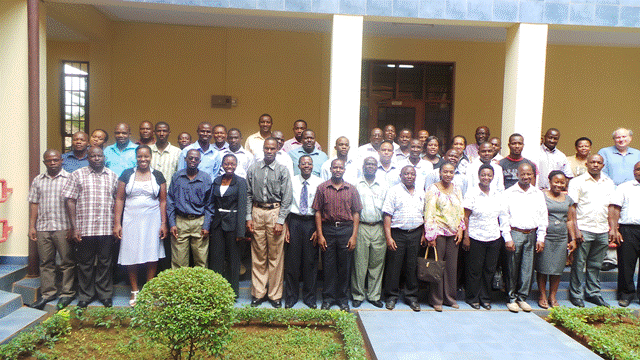
February 2014
StopRats partner, Seth Eiseb talks about his PhD in a SciDevNet podcast

January 2014
Steve Belmain talks to SciDevNet in a podcast about the new StopRats project and some of the good (detecting land mines) and bad (disease transmission) about rodents.
Six African countries unite to stop rats
The Natural Resources Institute issues a press release about new project: Sustainable Technologies to Overcome Pest Rodents in Africa through Science.
The article can also be found via NRI's online monthly newsletter, The Resource
The StopRats project is officially launched
An inception workshop at the Old Naval College, University of Greenwich was held over the week the 20th January, 2014. Attendees from all seven African partners braved the cold and wet conditions of an English winter to discuss and plan project activities that will take place over the next three years.
